The Conference
Topics to be discussed during the Forum’s 2-Day Conference will include destination sustainability, destination marketing and delivery, guest immersion and satisfaction, overcrowding, new destination entries, port infrastructure, “green” practices and solutions, effective berth allocation solutions and daily caps on arrivals.
| 09:00-09:30 | Morning coffee – Registration | |
| 09:30-10:00 | Welcome messages | |
| 10:00-10:10 | Main Conference Hall KEYNOTE SPEECH | |
| 10:10-11:30 | Main Conference Hall THE CRUISE INDUSTRY: A CULPRIT OR A VICTIM OF THE OVER-TOURISM DEBATE?
| |
| 11:30-11:50 | Networking coffee break for Speakers, Delegates and Press | Sponsored by  |
| 11:50-13:10 | Main Conference Hall THE FUTURE OF CRUISE DESTINATION DEVELOPMENT
Speakers Barbara Buczek, Chief Destination Experiences Officer | Cruise SaudiMarcus Puttich, Director, Destinations | TUI CruisesAna Karina Santini, Associate VP, Int. Destination Development | Royal Caribbean GroupSandi Weir, Sr. Director, Global Government Relations & Public Affairs | Norwegian Cruise Line HoldingsModerator Grant Holmes, Global VP, Cruise Solutions | Inchcape Shipping Services | |
| 13:10-14:10 | Networking lunch for Speakers, Delegates and Press | |
| 14:10-14:20 | Main Conference Hall REGION OF CRETE PRESENTATION | |
| 14:25-15:45 | Main Conference Hall SMALL SHIP CRUISING: A DIFFERENT PERSPECTIVE
Speakers Spyros Almpertis, VP, Port and Destination Operations, Guest Port Services | The Ritz-Carlton Yacht CollectionAleksander Bieniek, VP, Marine Operations | Star ClippersAdria Bono, Director, Destination Experiences | Crystal CruisesElisabetta De Nardo, Senior VP Global Port Relations & Commercial Services | MSC Cruises - Explora JourneysConstantine Venetopoulos, Brand Director | Variety CruisesModerator Frances Gannon, Εditor and co-founder | CruiseTimes | |
| 15:50-17:00 | Main Conference Hall CRUISING TOWARDS SUSTAINABILITY: PARTNERING WITH DESTINATIONS ON THE NET ZERO PATHWAYS
Keynote speech Maria Deligianni, Regional Director, Eastern Mediterranean | CLIASpeakers Ioannis Anastasakis, Vice Governor for Climate Change and Urban Mobility | Region of CreteManolis Koutoulakis, Secretary General for Insular Policy and Aegean | Ministry of Maritime Affairs & Insular PolicyNikolaos Mavrikos, President & CEO | Mavrikos Imports S.A.-Panhellenic Association of Ship Suppliers and ExportersIoannis Pappas, Director, Med Region & EU Sustainable Destinations | Global Sustainable Tourism CouncilModerator Julie Green, Deputy Director General | CLIA | Organised by 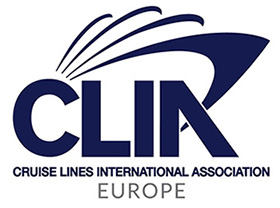 |
| 09:15-09:50 | Morning coffee – Registration | |
| 09:50-10:00 | Opening statements | |
| 10:00-11:20 | Main Conference Hall CRUISE PORTS: CAN INFRASTRUCTURE KEEP UP WITH DEMAND?
Speakers Manolis Alevropoulos, VP, Marine Operations | Celebrity Cruises - Royal Caribbean GroupIsabelle Côté, International Terminal Operations Management Consultant | Virgin VoyagesAziz Gungor, Regional Director, East Med Ports | Global Port HoldingsMinas Papadakis, CEO | Heraklion Port Authority S.A.Adam Sharp, Development Director | Cruise Terminals InternationalGianluca Suprani, Senior VP Port Development | MSC CruisesModerator Nicky Guerrero, Secretary General | MedCruise | |
| 11:20-11:40 | Networking coffee break for Speakers, Delegates and Press | |
| 11:40-13:00 | Parallel session-Main Conference Hall CRUISE LINES & DESTINATIONS: THE NEED FOR AN EARNEST DIALOGUE
Speakers Ligia Balea, Product Manager, Shore Excursions | Carnival Cruise LineDimitris Bekos, Head of Greece, Cyprus, Egypt, and the UAE | IntercruisesMichele Bosco, Manager, Shore Excursions and Operations | Princess CruisesAlessandro Carollo, Associate VP, Government Relations | Royal Caribbean GroupThanos Pallis, Professor, Maritime & Port Economics, Department of Maritime Studies | University of PiraeusModerator Nicky Guerrero, Secretary General | MedCruise | |
| 11:40-13:20 | Parallel session – ATHENA seminar room (level 0) ΜΕΤΑVASEA Port Safety Workshop Workshop Agenda
The panel will be held in Greek. The METAVASEA project, focusing on People-Centered Transition for Maritime Decarbonization in the East Mediterranean, is coordinated by HELMEPA in collaboration with Lloyd’s Register, World Maritime University (WMU), CYMEPA, CMMI, Premium Consulting, MIO-ECSDE, 12 associate partners, and valuable contributions of more than 70 other stakeholders, including Posidonia Exhibitions SA. Supported strategically and financially by Lloyd’s Register Foundation, the five-year project aims to map the existing infrastructure for maritime decarbonization in Greece, Cyprus, and the Eastern Mediterranean, as well as to empower seafarers, port workers, and maritime executives through the development of flexible training tools for retraining. The program aims to provide for the training and re-skilling/up-skilling of 1,500 employees on issues related to new fuels, enhanced safety culture onboard ships and in ports, digital transition, soft skills, environmental leadership, and marine environmental awareness. Moreover, it seeks to enhance the participation of shipping companies and port organizations in decarbonization initiatives, to measure the level of preparedness of shipping and coastal communities in the use of new fuels, to identify related opportunities, gaps and challenges in the Eastern Mediterranean, to prevent maritime accidents by improving operational efficiency in ship and port operations, and to raise awareness among 10,000 students, 750 teachers and about 2 million inhabitants of the Eastern Mediterranean. For more information & to register for this panel, please contact helmepa@helmepa.gr Speakers Dr. Eugenia Apostolaki, Senior Researcher at the Institute of Oceanography (HCMR)George Markezinis, Senior ESG Officer | HELMEPADr. Emmanouil Nikolaidis, Maritime Economist and Business ConsultantDr. Ioannis Salamouris, President | S.E. for Lifelong LearningConstantinos Triantafyllou, Head of Maritime Affairs & Stakeholder Development | HELMEPA | Organised by HELMEPA  |
| 13:00-14:00 | Networking lunch for Speakers, Delegates and Press | |
| 14:00-15:15 | Parallel session-Main Conference Hall
Speakers Manolis Koutoulakis, Secretary General for Insular Policy and Aegean | Ministry of Maritime Affairs & Insular PolicyPanos Dikaios, CEO | Attica GroupLoukas Sigalas, CEO | Minoan LinesChrysanthi Stefanou, Managing Director | Golden Star FerriesModerator George Xiradakis, President | Association of Banking and Financial Executives of Hellenic Shipping, Founder & Managing Director | XRTC BUSINESS CONSULTANTS | |
| 14:00-15:15 | Parallel session – ATHENA seminar room (level 0)
Speakers George Alexandratos, President | Hellenic Chamber of ShippingNikolaos Mavrikos, President & CEO | Mavrikos Imports S.A. - Panhellenic Association of Ship Suppliers and ExportersGina Polemi, President | HCPY-Hellenic Committee for Professional Yachting & Founder - Managing Director | Regatta PlusCaptain Stelios Sarafoglou, Captain Class A | Hellenic Yacht Masters ClubModerator Danae Bezantakou, CEO | Navigator Shipping Consultants & Founder | YES Forum | Organised by 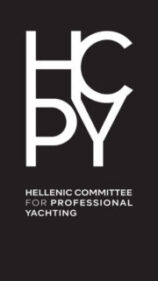 |
| 15:15-16:30 | Main Conference Hall YES to SEApping Forum The “YES to SEApping Forum” is an initiative by YES Forum designed to inform and engage young people (University students, graduates and young professionals interested in the Shipping and Sea Tourism industries) in the evolving Blue Economy, with a special focus on Shipping and Sea Tourism -two key sectors driving Greece’s economic growth. Through panel discussions featuring distinguished speakers from the shipping industry, the cruise and ferry sector, as well as port authorities, the participants will be provided with a comprehensive understanding of the industry’s opportunities and challenges. Following the panel discussion, targeted interactive sessions will allow young attendees to engage directly with professionals, ask questions, share concerns, and receive valuable career guidance. The “YES to SEApping Forum” serves as a bridge between aspiring professionals and leading maritime organizations, fostering meaningful dialogue and offering guidance for the next steps in their careers. To register please fill in this form or contact us at conference@navigatorltd.gr or +30 210 623 4000 Speakers George Alexandratos, President | Hellenic Chamber of ShippingOlga Bezantakou, VP of Legal | Navigator Shipping Consultants, KEFI SA and Filoxenia HellasGeorge Chronakis, Marine Personnel Manager | Eastern Mediterranean Maritime LimitedMaria Deligianni, Regional Director, Eastern Mediterranean | CLIAAkis Konstantinidis, HR Manager | TechnomarGeorge Koumpenas, Chief Operating Officer | CelestyalManolis St. Koutoulakis, Secretary General of the Aegean and Island Policy | Ministry of Maritime Affairs & Insular PolicyGeorge Mavrogenis, Marine Manager | Latsco Marine ManagementMinas Papadakis, CEO | Heraklion Port Authority S.A.Loukas Sigalas, CEO | MINOAN LinesGregory Spourdalakis, Managing Director | Columbia Shipmanagement GreeceChrysanthi Stefanou, Managing Director | Golden Star FerriesModerator Danae Bezantakou, CEO | Navigator Shipping Consultants & Founder | YES ForumPresentation of YES FORUM survey by Xenia Kourtoglou, Founder of Focus Bari & Resilience Expert | Organised by  |
| 15:15-16:30 | Parallel session – ATHENA seminar room (level 0) SHE4SEA WORKSHOP ON WOMEN IN BLUE ECONOMY The She4Sea Erasmus+ project works towards:
Workshop Agenda
The event will be held in Greek, with translation from English available when required. For more information https://she4seaproject.eu/ Speakers Prof. German de Melo Rodriguez, Marine Chief EngineerAnna Karadencheva, Lecturer | Nikola Vaptsarov Naval AcademyGiannis FoteinakisClara UrbaniFrosso Dimitrakopoulou, Senior EU Projects Officer | HELMEPAGeorge Markezinis, Senior ESG Officer | HELMEPAConstantinos Triantafyllou, Head of Maritime Affairs & Stakeholder Development | HELMEPA | Organised by HELMEPA 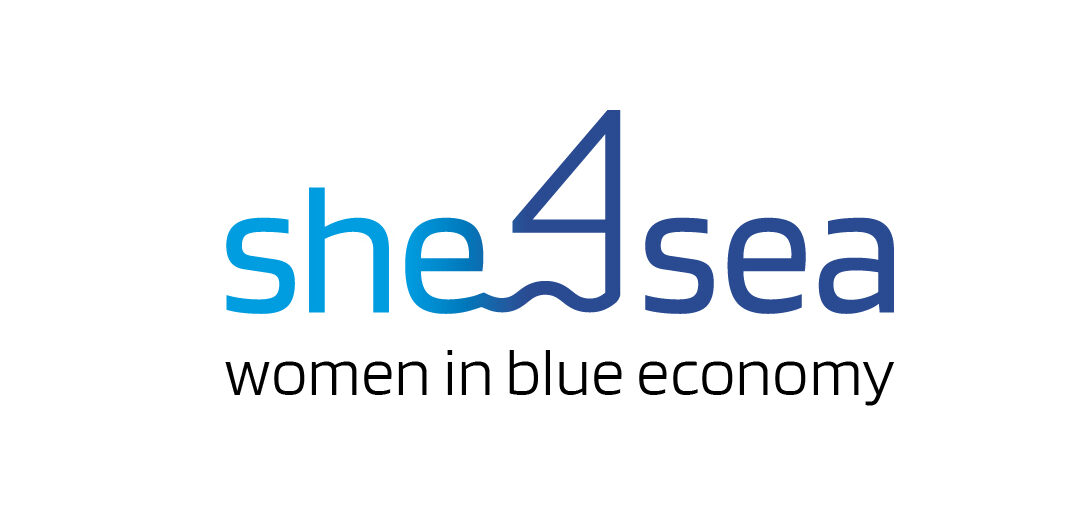 |
| Parallel activity - Beach clean up | The Hellenic Marine Environment Protection Association (HELMEPA) and Posidonia Exhibitions invite you to take part in a coastal cleanup at Gournes Beach (map). Among the first to join this effort are the children-members of the HELMEPA Junior Program from Gournes Primary School. All interested parties are warmly invited to participate and support this collective action to protect our seas and coasts. Cleanup materials will be provided by the organizers! The cleanup will take place on Wednesday 7 May at 09:30 am. Meeting point: Cretaquarium (map) | Organised by  |
| 11:00-15:00 | FAM TRIP: AN UNFORGETTABLE JOURNEY TO SPINALONGA ISLAND
Embark on a captivating journey that includes a guided tour through the unique ruined houses and buildings of the settlement that was, from 1903-1957, Greece’s official leper colony. Spinalonga gained international recognition as the setting for Victoria Hislop’s best-selling novel, “The Island” (2005). Gastronomy Experience: Enjoy lunch at the new restaurant, because gastronomy is an essential part of the Hellenic Heritage experience. Important notes
Registrations for the fam trip are now closed. If you’re still interested, please contact the organisers (seatourism@posidonia-events.com) in case a spot becomes available due to cancellations. | Organised by  |
Sponsorship & Advertising
As a Sponsor or Supporter of the event you can enjoy a selection of exposure opportunities, which will raise your company profile, enhance awareness of your products and services and enable you to reach out to cruise executives and the international sea tourism industry.
- Sponsor benefits include:
- Free delegate passes
- Fully equipped exhibition stand
- Sponsor’s logo on all conference literature
- Logo on conference backdrop
- Logo on speaker, exhibitor and delegate lanyards
- Invitations to speakers’ dinner
- Logo on Posidonia Sea Tourism Forum advertisements
- Company profile to be included in the Forum programme
…and more.
Advertising Options
- Full page in the PSTF catalogue
- Banner on PSTF website
- Exhibitor’s promo (mass mailing)
Speakers
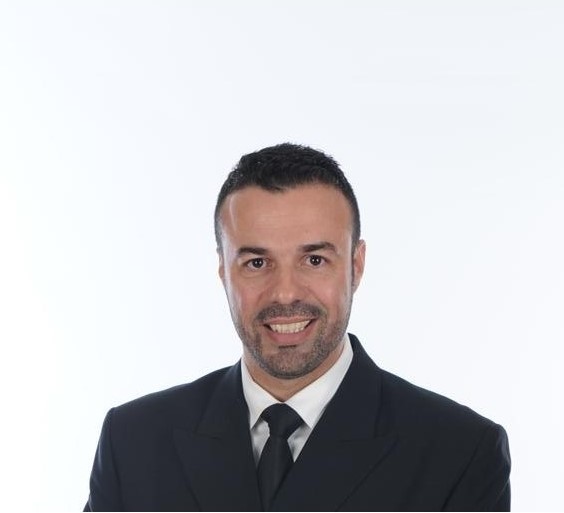 | CV Captain Manolis Alevropoulos is the Vice President of Global Marine Operations, since 2019. As the Vice President and Fleet Captain (since 2017), he is responsible for managing day-to-day marine operations, of the Celebrity Cruises Fleet of 15 ships, providing leadership, guidance, and officer development with a focus on Maritime Safety, Environmental Compliance and Sustainability, Public Health, Security and Technical Reliability. Captain Alevropoulos has overseen the Port Development and Marine Infrastructure for Royal Caribbean Group (RCG) from 2015 until 2017. He has contributed in opening new cruise destinations including Alaska, Caribbean, Baltic and Mediterranean regions for the newest Royal Caribbean Group ships, which are the largest in the world. He also overlooked the Safety for the Global Fleet of the Royal Caribbean Group from 2022 to 2024. As Marine Operations Vice President he reports to the Head of Marine for the company, he is a member of the leadership team of the Marine Organization and the leadership of the brand reporting to the President. Manolis is a native of Greece, born in Athens. He graduated the Nautical Academy of Hydra, Greece and is a Master Mariner since 2006. He also holds an MSc in Shipping from the University of Plymouth, UK. After his 23 years at sea onboard Celebrity Cruises Ships, out of which he served the last ten years as a Captain, he combines shipboard operational experience with corporate shore side leadership and management skills. In 2015, he moved from Greece to Miami, Florida, USA, where he currently resides with his wife and four children. |
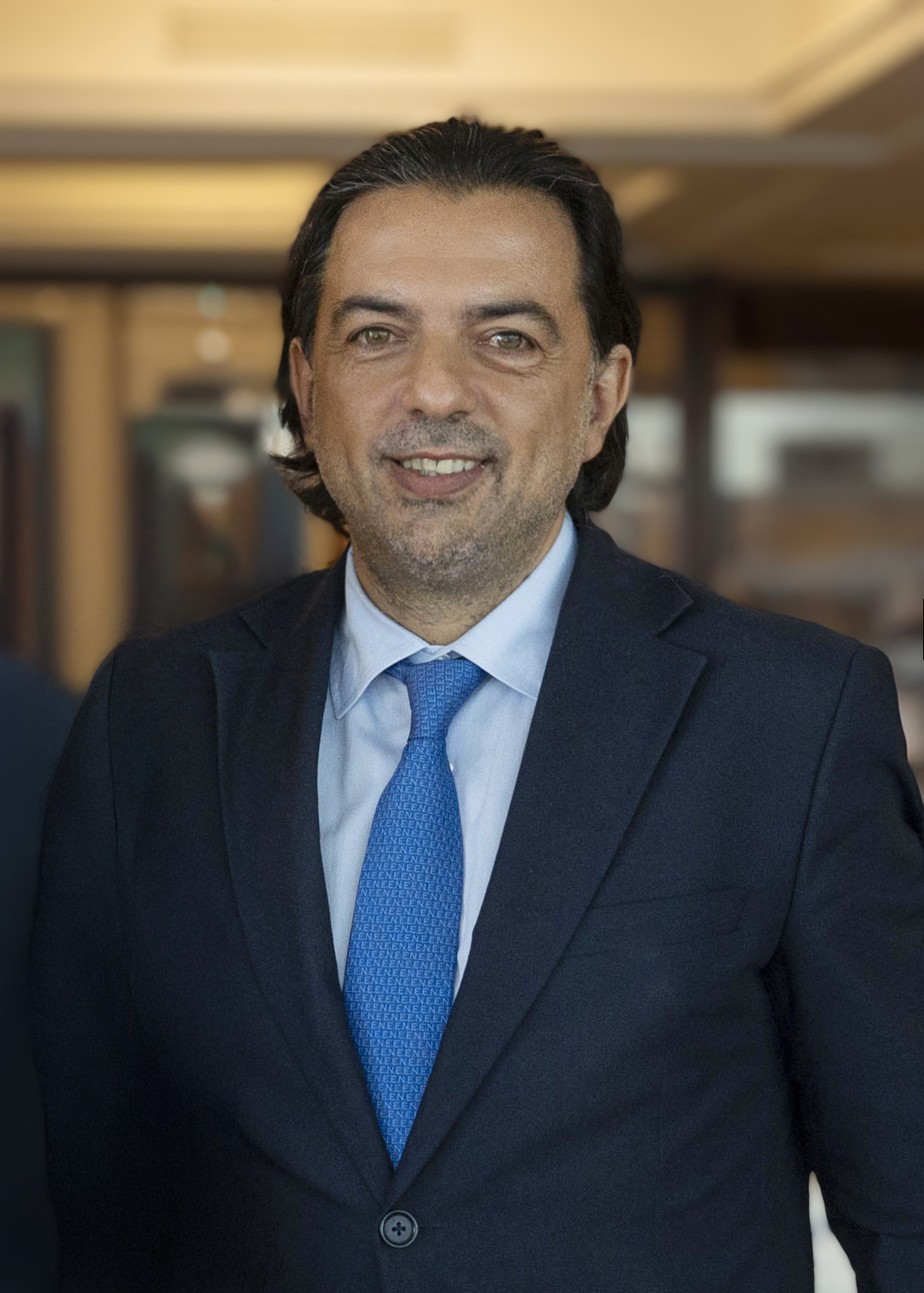 | CV George Sp. Alexandratos was born in Athens in 1973. He holds a BSc in shipping business from Plymouth University and an MSc in Maritime Policy from Cardiff University. He is the director of Apollonia Lines S.A., a company founded by his father Spyros in 1974. Since 2013, George established, along with co-partners, a shipping fund called Blue water Maritime Capital focusing to invest in dry bulk shipping. George Sp. Alexandratos is the President of the Hellenic Chamber of Shipping, elected since January 2025. He previously held the position of Vice President since 2017. He is also the General Secretary of the Hellenic Short Sea Shipowners Association since 2015. Additionally, he was elected as the President of the Piraeus Marine Club. In the past (from 2014 to 2016) he also served as the President of the Hellenic Hull Mutual. He believes very much in synergies and he is a strong supporter of the Maritime Hellas, the official Hellenic Maritime Cluster. |
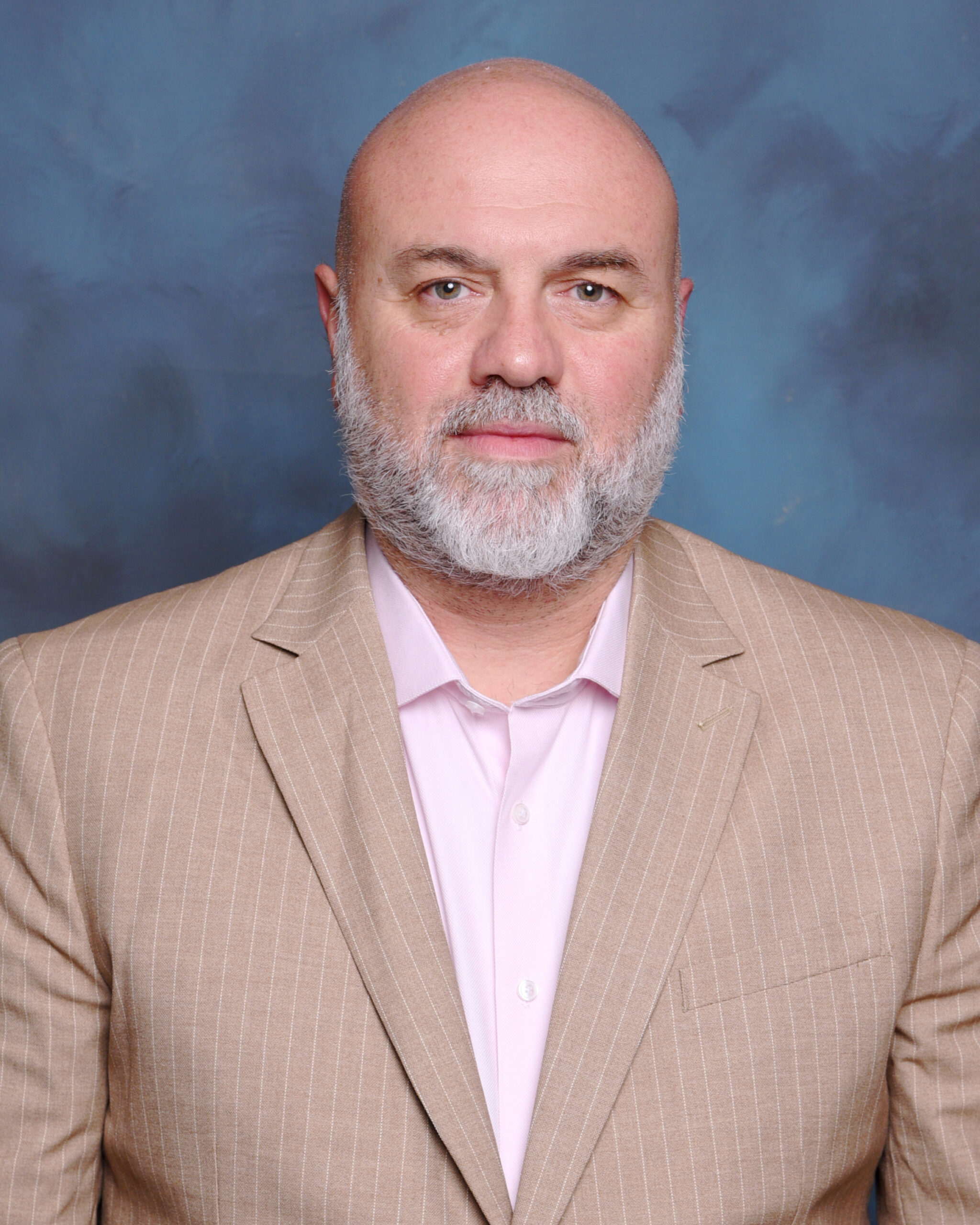 | CV Spyros Almpertis is a highly experienced cruise industry veteran, born in Piraeus, Greece. He spent several years serving in the Navy before embarking on a successful 30-year career in the cruise industry, during which he has held important management positions both ashore and on board for multiple cruise lines such Festival, HAL,P&O, NCL, Silversea and Crystal before join Ritz Carlton yacht Collection. Spyros has developed an unbeatable expertise in port operations, itinerary planning, fuel and fleet management in addition to all projects which has been completed during his long career. Few very important achievements over his past experience in cruise industry – Back in the years as part of Gratuities Implementation team for HAL, Part of MXP project team for Silversea Cruises, During Covid 19 period ensured the safety of the fleet having all vessels, expedition and classic in the port of Marseille for all the duration of all pandemic, while in Silversea had accomplish a full support by Greek Government providing to Silversea Cruises all Covid-19 vaccines in order to resume service after a very long difficult period and lately, few months ago during his time with Crystal Cruises arranging and overseeing the passage of Suez canal under the support of US, French and Greek Navy without any problem. Spyros has a proven track record of building a vast network of external partners in every brand was served such port agents & Ground Operators worldwide and has been praised by colleagues both on board and ashore for his ability to guarantee safe turnarounds at different ports globally covering under his career more than 1200 different ports around the world. With his extensive experience and unwavering commitment to excellence, Spyros is poised to make significant contributions to his new organization. |
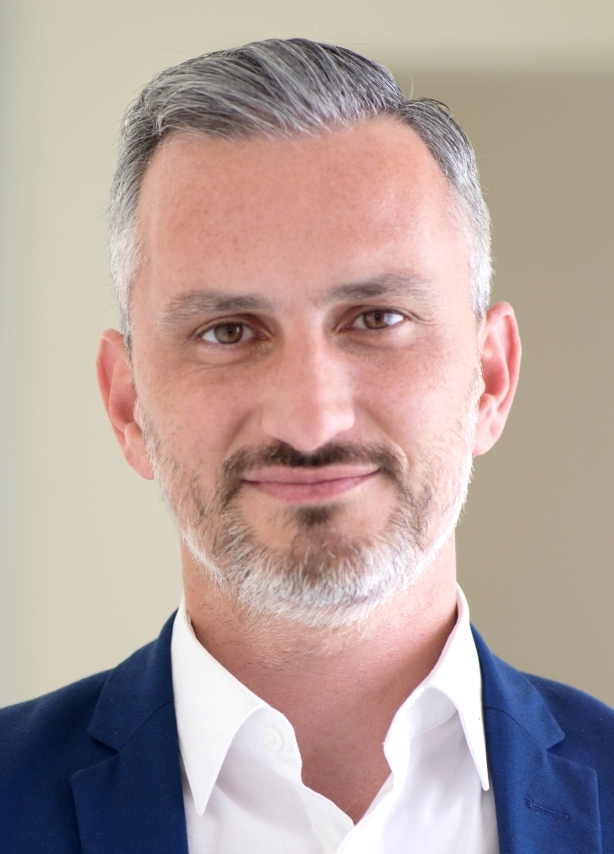 | CV Yiannis Anastasakis is a Civil Engineer who graduated from the National Technical University of Athens (2004) and holds a Master’s degree in Construction Design from the same institution (2006). He has extensive experience in both private and public sector projects. Additionally, he is a certified real estate appraiser with the Greek Ministry of Finance, with a decade of experience in this field. He has served as a consultant at the Ministry of Environment, Planning, and Public Works, where he held the role of Director for the Secretary General for Planning and Environment’s office (2007-2009). He also worked as a special adviser to the Regional Governor of Crete and was a board member of the Heraklion Port Authority SA (2013-2015). Anastasakis spent five years as a public servant in the Technical Department of Anogia Municipality, where he was responsible for the creation and implementation of an Integrated Development Plan for this historic area (2009-2014). From 2014 to late 2023, he was an elected member of the Heraklion City Council. During this period, he served as Deputy Mayor for Urban Planning, responsible for the city’s commercial activities. Until August 2019, he also held the position of Vice Mayor for Technical Works and European Programs. Later, he was Vice Mayor for Technical Projects, Urban Green Spaces, and Daily Affairs. He coordinated Heraklion’s Sustainable Urban Development Plan, one of the most highly regarded in Greece, guiding the city’s development toward 2030. His tenure included the introduction of new regulations for commercial operations, modernization of licensing frameworks, expansion of city planning zones, and the upgrading of the municipality’s Geographical Information System. He also managed critical public safety issues, such as the handling of dilapidated buildings and stream demarcation. Key projects during his time included the reconstruction of the city center, the multi-use redevelopment of the Venetian Walls, traffic reorganization in the historic center, the establishment of free parking outside the “Walls,” and the introduction of free city transport via minibuses. Currently, Anastasakis is an elected member of the Regional Council of Crete and serves as the Vice Governor for Climate Change and Urban Mobility. His objectives for his term include: – Promoting Sustainable Tourism: Fostering collaborations to develop alternative tourism in Crete. – Supporting the Primary Sector: Activating committees for key agricultural products and collaborating on water management strategies in the agricultural sector. – Forestry and Urban Green Initiatives: Leading reforestation efforts in partnership with local and international organizations, and developing botanical parks and green infrastructure. – Raising Awareness and Outreach: Launching educational programs on climate action and establishing a Regional Youth Climate Council. – Sustainable Mobility: Creating transportation hubs, enhancing road safety, and developing a Sustainable Urban Mobility Plan (SUMP) with support from the POLIS network. Anastasakis is committed to sustainable development in Crete through collaboration and action, with a focus on environmental, social, and economic progress. He is a strong advocate of positive thinking and cooperation and remains optimistic and determined to contribute to the re-establishment of the country’s future. |
 | CV As Senior Advisor for Institutional and Maritime Affairs, Kyriakos (Kerry) Anastassiadis oversees MSC Cruises’ relationships with insitutions, public authorities and regulatory bodies around the world. Mr Anastassiadis is a seasoned executive with extensive expertise in consumer products and travel and leisure. Prior to joining MSC Cruises, he was CEO of Celestyal Cruises, a Greece-based cruise line. During this tenure, he oversaw a major rebranding exercise and refocus to Eastern Med operations. In 2017, Mr Anastassiadis was appointed European Chairman of Cruise Lines International Association (CLIA), the association representing the global cruise indsutry. In this position, he actively defended the cruise industry’s reputation and record before the EU insitutions and other pubic authorites across Europe. Prior to this, Mr Anastassiadis held a range of high-level executives positions in a number of internationally renowned corporations such as The Coca-Cola Company, Aujan Coca-Cola Beverages Company, Polariod and Procter& Gamble, working in locations spanning Europe, Asia, Middle East and Africa. Born in the Democratic Republic of Congo and raised in Southern Africa, Mr Anastassiadis studied Commerce at the University of Witwatersrand in Johannesburg, obtaining a Bachelor of Commerce in Marketing & Finance and a postgraduate title in Market Research and Advertising. |
CV Eugenia Apostolaki holds a BSc in Biology (2001), an MSc in Management of Terrestrial and Marine Resources (2004) and a PhD in Marine Ecology (2008). Her PhD thesis studied the carbon and nutrient dynamics in degraded seagrass (Posidonia oceanica) meadows Eugenia is a Senior Researcher at the Institute of Oceanography (HCMR). Her research focuses on the ecology and biogeochemistry of seagrasses. She studies the response of seagrass to environmental disturbance and global change, and she is particularly interested in assessing the role of seagrass meadows in climate change mitigation and adaptation. Eugenia has contributed to 60 peer-reviewed scientific publications (March 2025 SCOPUS h index =23, with 4,209 total citations), and to > 60 presentations at national and international conferences, incl. ASLO, WCMB, EMBS, ECSA, CIESM. She has coordinated and/or participated in > 30 European and national research projects. She is a member of scientific networks and working groups (EINOET Thematic Group Marine & Oceans, Working group on benthic habitats for UNEP/CORMON). She is a Review Editor of Aquaculture Environment Interaction (Inter-Research, 2009), Editorial Board member in Biodiversity (MDPI, 2019), Associate Editor in Frontiers in Plant Science (2022) and Reviewer in several journals, incl. Q1 journals such as Global Change Biology. She is an Evaluator for European Commission (Marie Skłodowska-Curie Individual Fellowships), the Foundation for Science and Technology of Portugal, Qatar National Research Fund, Research Promotion Foundation of Cyprus (RPF), General Secretariat for Research and Innovation of Greece, Register of Expert Peer Reviewers for Italian Scientific Evaluation of Italy (REPRISE), Paris Region Fellowship Programme of France (ParisRegionFP), Hellenic Foundation for Research and Innovation of Greece. She teaches seagrass-related classes at the Master programmes of the Biology Department of the University of Crete (Greece) and has mentored and supervised multiple post-doctoral researchers and PhD, MSc and undergraduate students. |
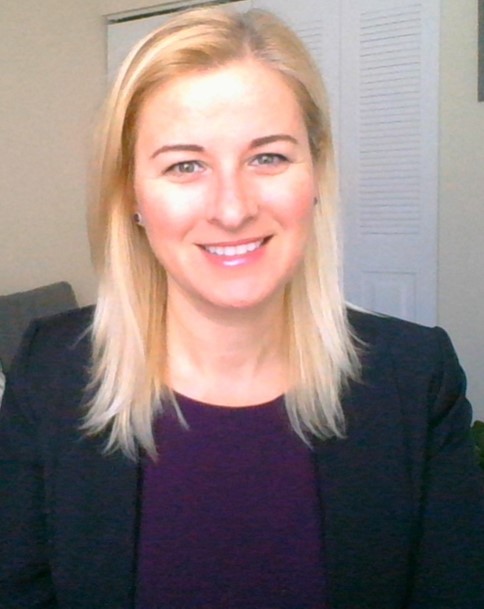 | CV Ligia Balea is an experienced leader in the cruise and tourism industry, currently serving as Product Development Manager for Shore Excursions at Carnival Cruise Line. She began her journey in tourism over a decade ago, transitioning from the hotel sector to the cruise industry, eventually shaping shore excursion programs that impact millions of guests. Her portfolio includes more than 850 curated experiences in over 60 ports, working in close collaboration with a global network of over 100 tour operators. Ligia is recognized for her ability to bridge cultural authenticity with guest expectations, designing tour programs that enhance brand loyalty and elevate the overall destination experience. She has successfully launched numerous new tours and strengthened partnerships across various markets by fostering collaboration, innovation, and operational excellence. She is also actively improving guest experiences in Caribbean ports where limited infrastructure and overcrowding present ongoing challenges, focusing on elevating quality while balancing capacity and sustainability. With previous experience at Royal Caribbean and Marriott, Ligia brings a well-rounded perspective that spans both cruise and hospitality. She holds an MBA in International Business from Florida International University. Ligia is passionate about transforming traditional excursions into inspiring journeys that celebrate culture, storytelling, and the spirit of exploration. |
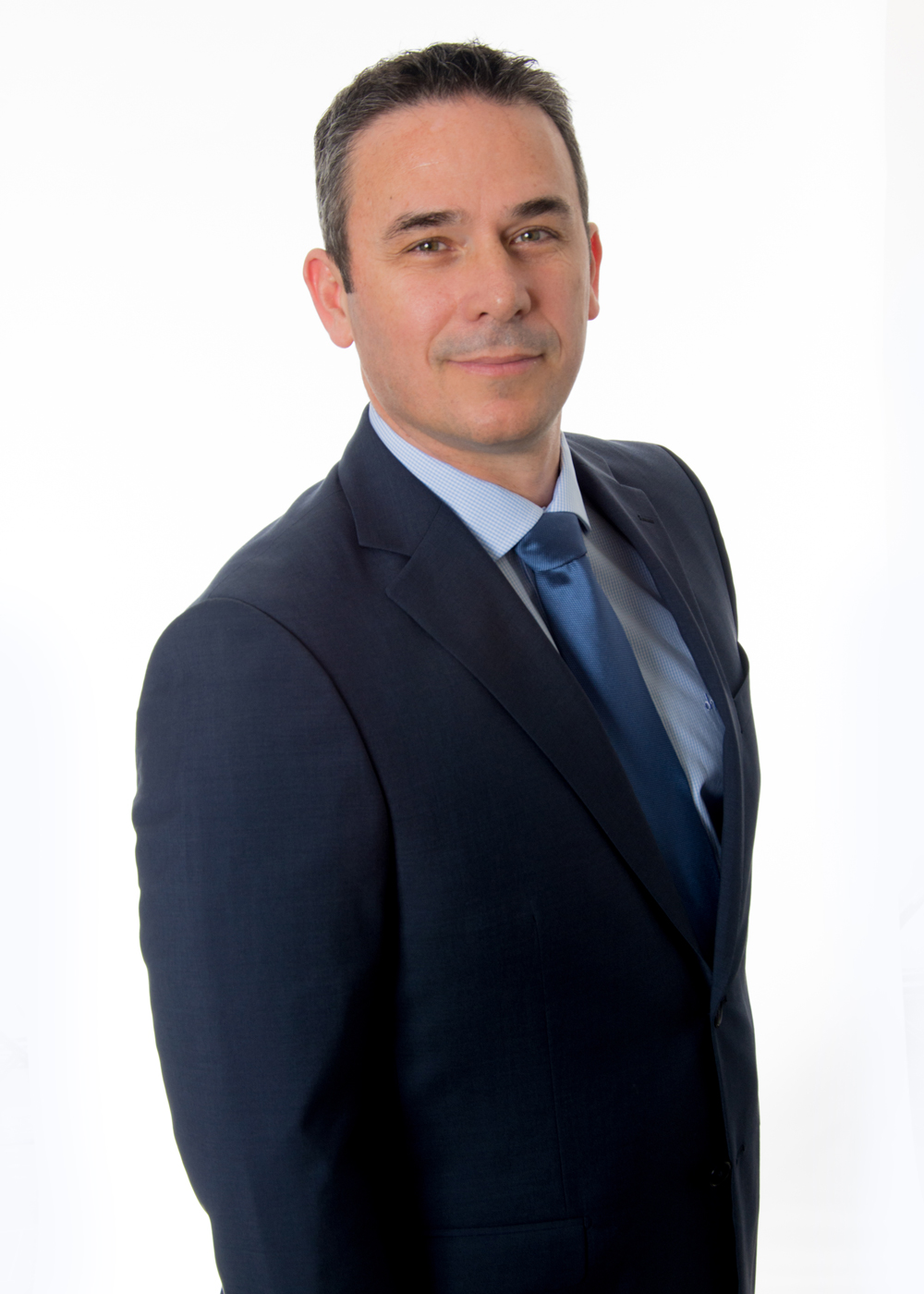 | CV Dimitris Bekos is a seasoned cruise industry professional with over 30 years of expertise in turnaround operations, shore excursions, pre- and post-cruise programs, overland programs, incentives at sea and port agency services. Since joining Intercruises (TUI Hellas) in 2012, he has held various key positions and currently serves as the Head of Greece, Cyprus, Egypt, and the UAE, overseeing all TUI Musement operations in these regions including Intercruises. Born and raised in Australia, he moved to Greece in 1992 and holds a BSc in Banking & Finance and an MBA in Business Administration. |
 | CV Danae Bezantakou is the CEO of NAVIGATOR SHIPPING CONSULTANTS (www.navigatorltd.gr) in the maritime sector while also being actively involved in her family’s tourism businesses, as co-CEO of KEFI S.A. (www.kefitours.gr) – a travel agency in Kifisia, Athens, and MATILDA 4* Hotel (www.matildahotel.gr) in Zakynthos. One of her key professional achievements is organizing the annual NAVIGATOR shipping forum (https://navigatorltd.gr/forums/), a well-established industry event and a major platform for dialogue and exchange among decision-makers in Greek and global shipping since 2001. She is the Concept Founder of the Young Executives & Students (YES) Forum (www.yes-forum.com), an open-dialogue platform connecting executives, students, pupils, and young professionals interested in the shipping industry. She is also the author of the children’s book “Προς Θάλασσα Μερια” (Destination Sea), published by Dioptra, which introduces children over the age of 8 to the maritime world. Additionally, she serves as the 1st Vice President of the International Propeller Club, Port of Piraeus (www.propellerclub.gr), President of the Hellenic Network of Mentoring iforU (www.iforu.gr), which supports and connects female entrepreneurs, Head of the Education Committee at ICC Women Hellas and Member of the Comité Maritime, CCI France Grèce. She was selected as a European Young Leader in 2013 and a Global Young Leader in 2015 by the World Economic Forum. Danae has represented Greece twice in the International Visitor Leadership Program (IVLP) of the U.S. Department of State (2011 and 2017). She is also a founding member and the first president of the Hellenic U.S. Alumni Association, which brings together Greek participants of U.S. State Department programs, including IVLP alumni. A milestone in her career was being chosen by the U.S. Embassy in Greece to participate in the #MakingItHappen campaign (https://mosaiko.gr/makingithappen/epicheirimatikotita/) as a Role Model in Entrepreneurship. In 2020, as part of the 80th anniversary of IVLP, she was recognized among the #80facesofexchange, selected from 225,000 alumni worldwide of U.S. Department of State exchange programs. She is an active speaker at shipping conferences, entrepreneurship events, and career days in schools and universities. Additionally, she serves as a judge in competitions and is a mentor in organizations supporting startups. Danae holds a degree in International Hospitality and Tourism Management from the University of Surrey and is the mother of a 16-year-old daughter. |
CV Olga Bezantakou is a Greek lawyer, member of the Athens Bar Association, specializing in corporate, commercial and real estate law. She holds an LLB from the National and Kapodistrian University of Athens and has completed three master’s degrees: an MSc in International Shipping, Finance, and Management from the Athens University of Economics and Business (2019); an LLM in Pharmaceutical Law from Aristotle University of Thessaloniki (2022); and an LLM in Law from the University of Glasgow (2023). Olga runs her own law office advising on M&A and financing transactions. She regularly provides advice to companies on day-to-day corporate law matters and provides guidance on and ensures compliance with laws and regulations in business sector. In addition to her legal practice, Olga joined the family group of businesses, NAVIGATOR SHIPPING CONSULTANS, KEFI SA and FILOXENIA HELLAS A.X.T.E.E. as VP of Legal. By combining legal expertise with practical business insight, Olga is dedicated to connecting the legal profession with the dynamic world of entrepreneurship and corporate strategy. |
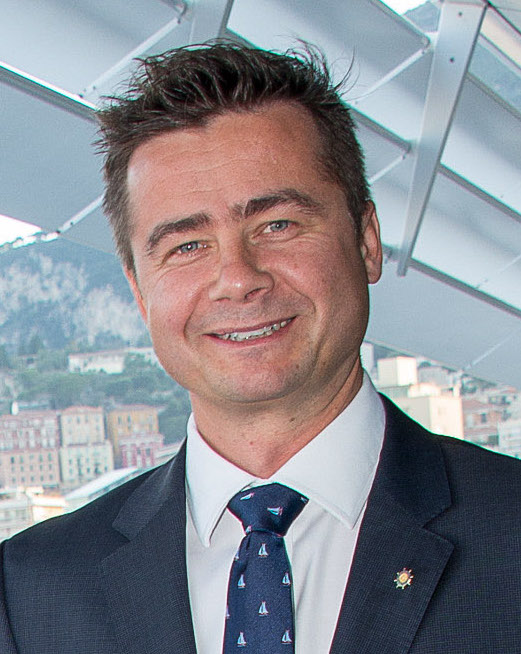 | CV Aleksander joined the Star Clippers Monaco in 2013 as Fleet Manager, promoted to VP Marine Operations in 2014. He is responsible for port operations, itinerary planning, fuel management, insurance and compliance with maritime regulations. Graduated from Gdynia Maritime University in 1996, spent 10 years at sea, and since 2006 has been involved in a shore based ships’ management. |
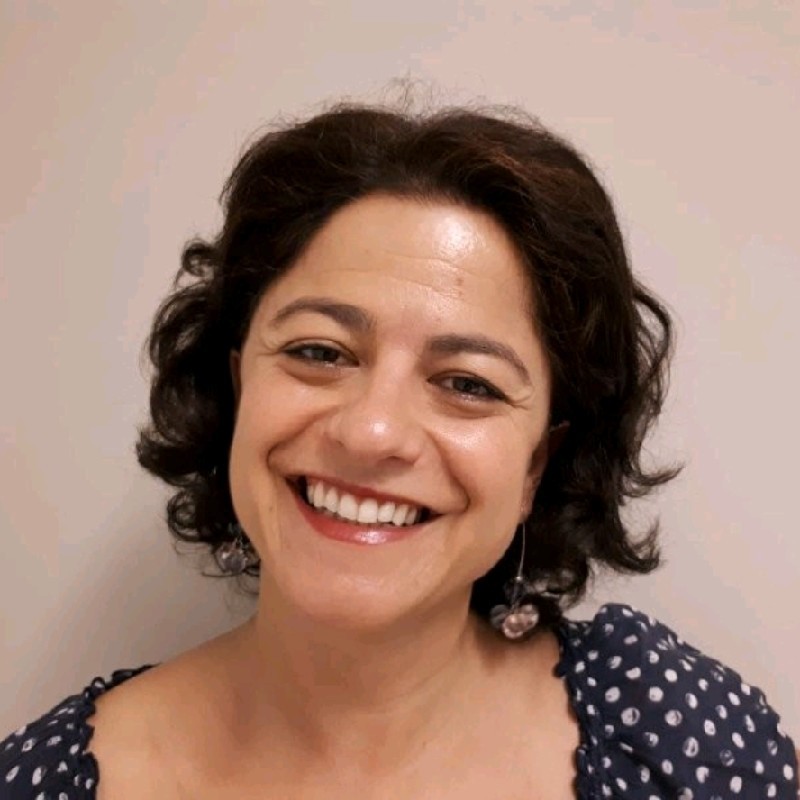 | CV Adria has 22 years of experience in the cruise industry always in the shore excursions department covering different roles. She started in 2003 in the Shore Excursions on board of Costa Cruise as Shore Excursion Manager for several years reaching high revenues and excellent guests satisfaction targets. After six years on board she decided to bring her on board experience cooperating with an important Tour Agent in Italy serving the major cruise lines both in the mass and luxury markets (Costa, MSC, Saga and Windstar to name a few). In 2011 Costa Cruises offered her to be part of the ashore Shore Excursion department specifically to work in redesigning the shore excursion program for the luxury segment. She has also been involved in strategical projects like the joint bidding for appointing Tour Agents for Carnival Corp Group. In 2016 she joined Silversea as Head of Destination Management for the Classic fleet. After a couple of year, she has been promoted Senior Director Destination Experiences both for Classic and Expedition. During the experience in Silversea Adria drove strategical projects like developing and enhancing shore excursion offer both on Classic and Expedition vessels; improving the booking process and the website content accessibility; harmonizing organizational procedures on Classic and Expedition vessels; automatizing and simplifying ashore and onboard teams’ tasks. |
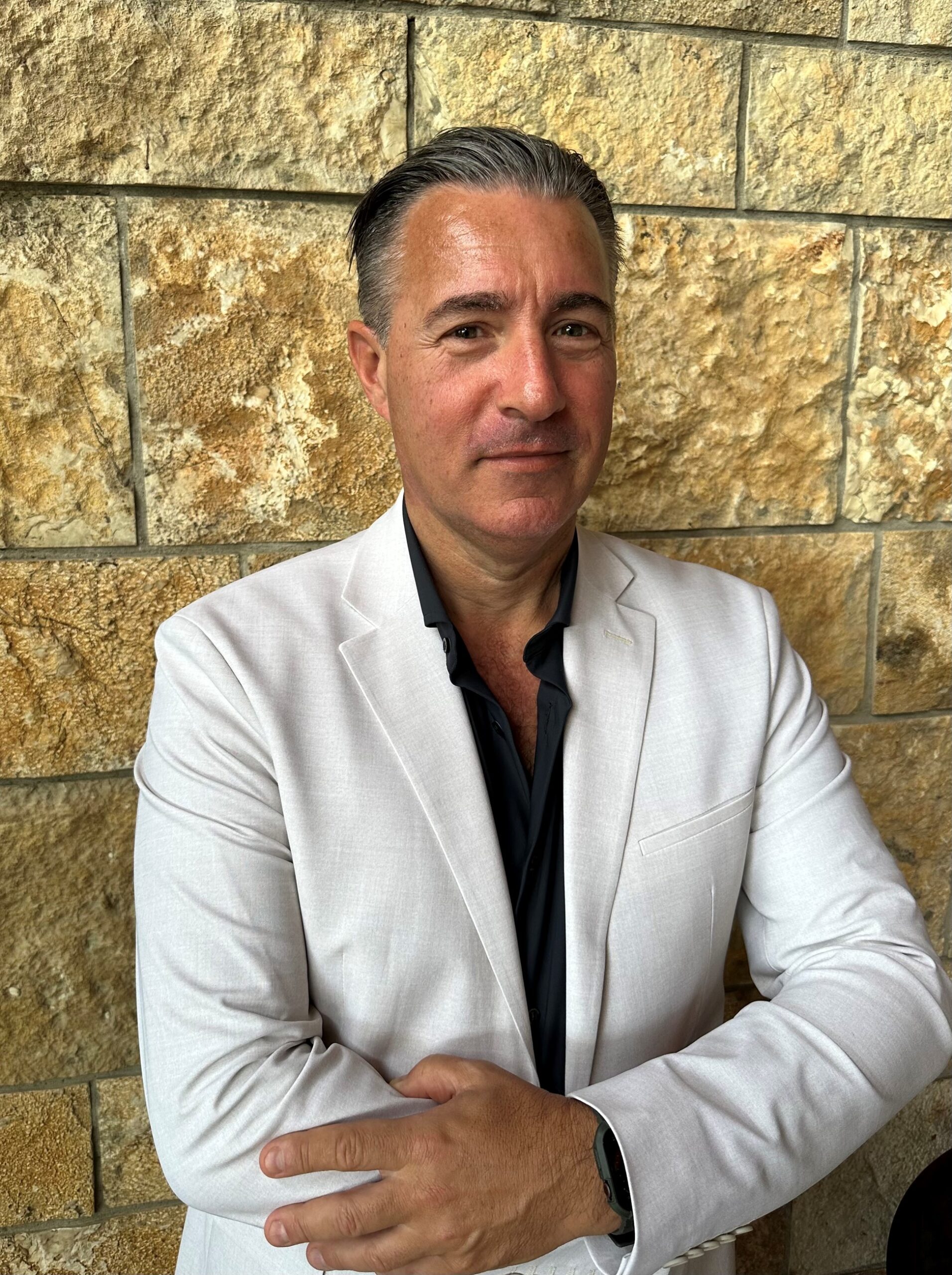 | CV Michele was born in Lecco (North Italy) and ‘raised’ on ships. He has started his career in the cruise industry as Junior Assistant Purser onboard Princess ships (including the original ‘Love Boat’) in 1997. He covered various positions in the Purser’s Department before joining the Destinations Team in 2001, and never looked back since. He moved permanently to land at the end of 2018 where he joined the Shore Operations Department, serving Princess Cruises, Holland America and Seabourn Lines. During this time he has also supported the Pre-Post Cruise Hotel Program and Pre-Post Land Journeys. He currently manages the shore excursions product and operations for Princess Cruises in the Mediterranean, Africa, Middle East, Mexican Riviera and Black Sea. He has degrees in Business Administration and Foreign Languages. Michele loves to travel and has visited more than 330 ports in his seagoing career. |
 | CV Barbara joined Cruise Saudi in 2021, and most recently has been appointed to Chief Destination Experiences Officer, overseeing all aspects of Destination Experiences including asset development, operations, shorex and business development. Previously, Barbara worked with the Port of Dover Group for 11 years and held several senior management positions across operational and commercial areas, including Group Chief Commercial Officer, leading the development of the group’s business portfolio including ferry, cruise, cargo, marina and property. A law and business graduate with over two decades of professional experience in the cruise and port industry, Barbara has been instrumental in developing relationships with international cruise lines and promoting Cruise Saudi to a global audience. With Saudi fast becoming an increasingly attractive tourist destination, a crucial element of Barbara’s role at Cruise Saudi includes overseeing the port and terminal development, operations and shorex teams at Jeddah, Yanbu and Dammam. There are ambitious plans to increase the number of ports equipped to welcome cruise ships to 10 within the next decade. |
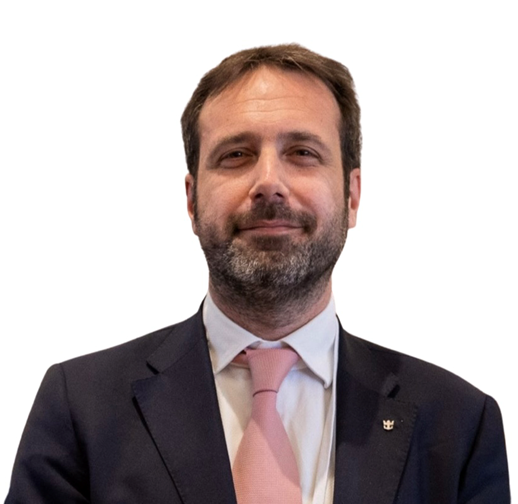 | CV Alessandro worked for international port and shipping agencies since 2000 before landing at Royal Caribbean Group’s port operations in 2014, where he assumed increasing responsibilities, ultimately as Director of Port Services, EMEA. As of October 2021, in his current position he is responsible to engage with governments, local authorities and institutional stakeholders on policies and key initiatives focused on maritime, public health, sustainability, and destination management matters. Alessandro holds a degree in political science and international relations. He has been Chair of the CLIA Europe Ports and Destinations committee from Sept 2021 to January 2024. |
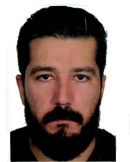 | CV Capt. George Chronakis is an experienced maritime professional with a strong background in seafaring and crew management. He graduated from the Maritime Academy in 2007 with a Master’s Rank and began his career as a Deck Cadet. Following his military service in the Greek Army (2007–2008), he spent 15 years at sea on various tanker ships, progressing from Master Class C’ (2008–2015) to Master Class B’ (2016–2019) and ultimately achieving Master Class A’ (2019–2023). Since 2023, he has been serving as Marine Personnel Manager at Eastern Mediterranean Maritime Ltd. |
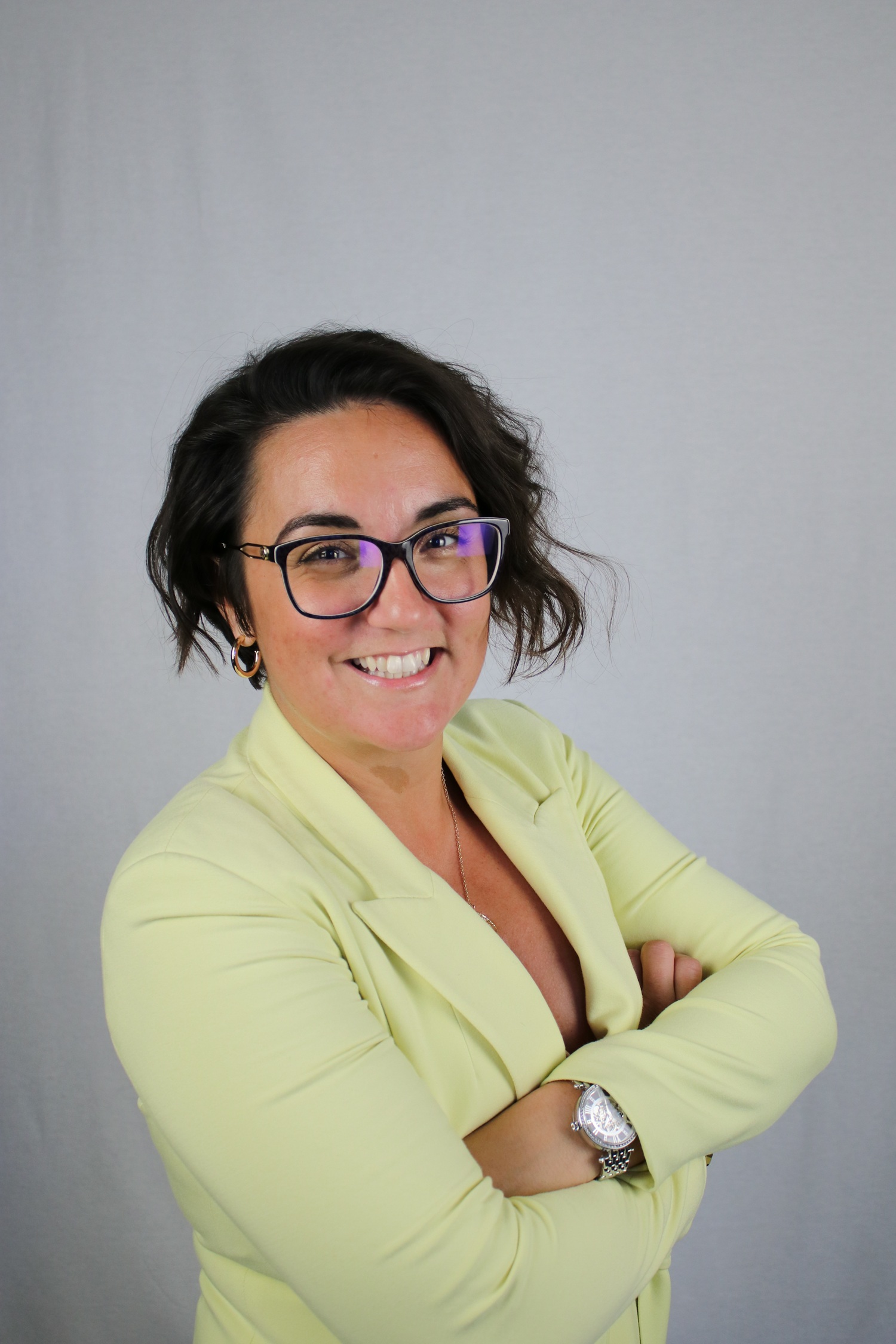 | CV Meet Isabelle Côté. Isabelle currently holds the position of International Terminal Operations Management Consultant at Virgin Voyages, overseeing all International planning homeports service delivery for the brand. Isabelle specializes in enhancing cruise terminal efficiency, improving guest experiences, and fostering sustainable destination development. She is passionate about sharing insights on how well-managed infrastructures, terminal operations, and engaging shoreside offerings can elevate passenger satisfaction and drive long-term success in the cruise sector. Cumulating over 15+ years of experience in cruise operations, high-end hospitality and tourism, she plays a key role in shaping innovative strategies while fostering partnerships across the global tourism & cruise industry. |
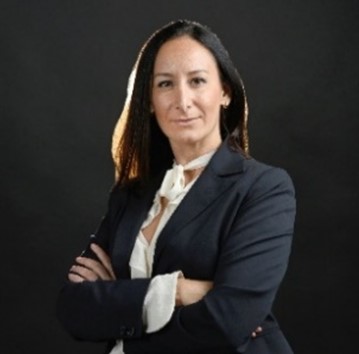 | CV A well-known presence within the cruise industry for almost two decades, Elisabetta was appointed to the new role of SVP Global Port Relations & Commercial Services in February 2025 for both brands of the Cruise Division of MSC Group; MSC Cruises and Explora Journeys, after six years as VP Port Development. Based in Geneva, in her role Elisabetta manages the complexity of the ports’ operating costs and commercial services and supports the development of strategic partnerships with the global ports’ community and stakeholders. Additionally, she has been Chairman of the CLIA Europe Port & Destination Advisory Committee since February 2024, for the second time in few years. Elisabetta joined the cruise industry in 2007, having first worked in the liquid and solid bulk cargo shipping business, where she reached the level of Director, Operations. Her cruise industry mandate began at Costa Cruises, followed by Silversea Cruises, where she was appointed Vice President, Port & Destinations Operations. Elisabetta has a Bachelor’s degree in Shipping & Maritime Economics and a Masters in Cargo Marine Surveying (London). |
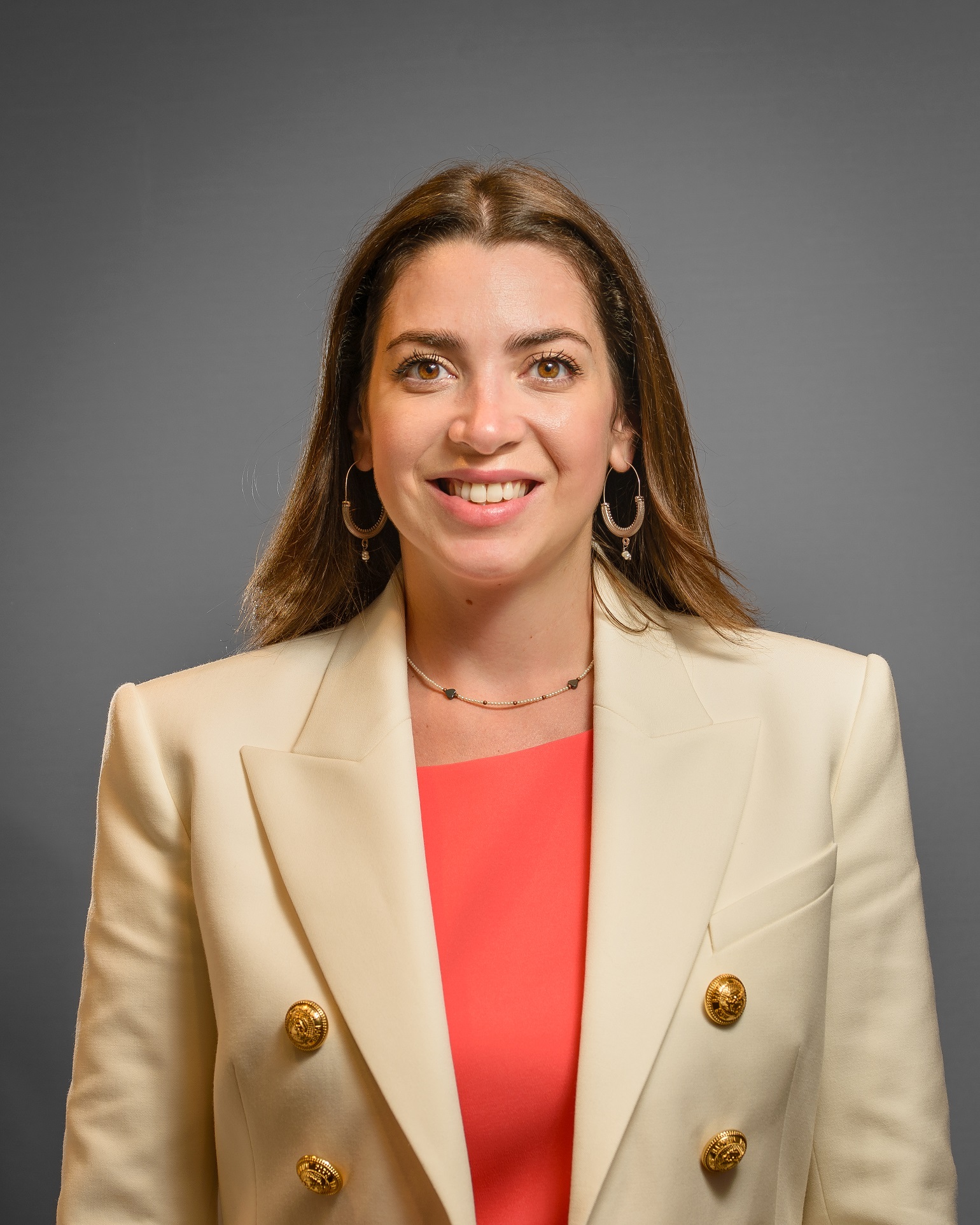 | CV Maria Deligianni is the Regional Director for the Eastern Mediterranean at Cruise Lines International Association (CLIA), the world’s largest cruise industry trade association representing more than 90% of the cruise sector, headquartered in Washington DC. Maria joined CLIA in March 2018 and is based in Athens. In her role, she is responsible for handling government and public affairs issues in the Eastern Mediterranean region (Greece, Cyprus, Egypt, Turkey, Israel). Maria has been working in the shipping industry for 15 years. Prior to joining CLIA, she served as a Senior Advocacy and Policy Advisor at the European Community Shipowners’ Associations (ECSA) in Brussels focusing on maritime safety, environmental and offshore shipping issues. She also worked at the European Commission, in the Directorate-General for Mobility and Transport (DG MOVE) in Brussels. In addition, she worked for SQE Marine Group in Piraeus and PriceWaterhouseCoopers (PwC Greece) in Athens. She holds an executive Master’s degree in Maritime Science with distinction from the University of Ghent in Belgium. She also has a Master’s degree in International and European Studies from the University of Piraeus and a Bachelor’s degree in Political Science and Public Administration from the University of Athens. |
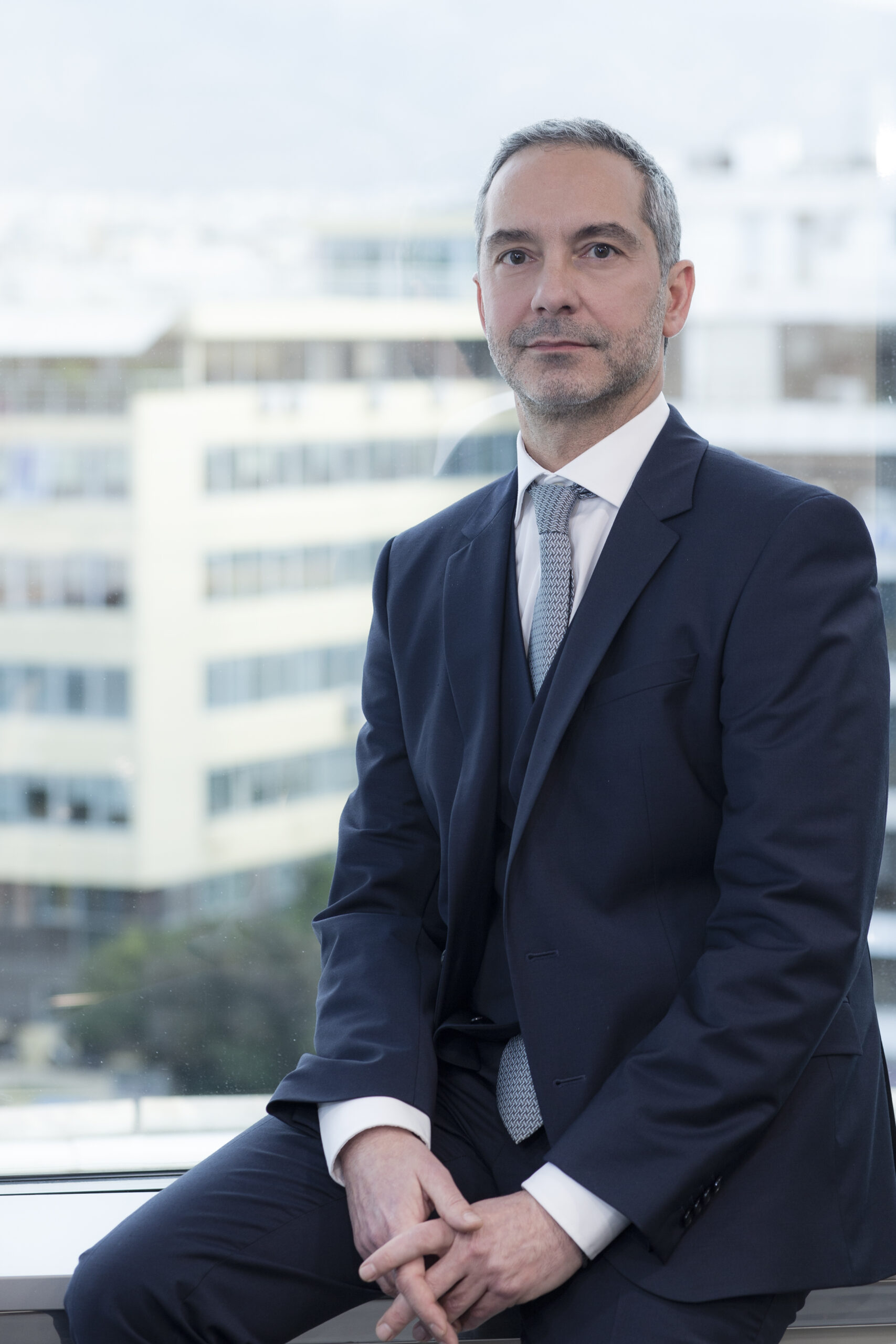 | CV Panos Dikaios is the CEO of ATTICA GROUP, one of the leading ferry operators worldwide, based in Greece. He joined the Group in 2012 and from 2013 until 2023 he served as the Chief Financial Officer. Mr. Dikaios is also a member of the Board of Directors of ATTICA GROUP as well as its subsidiaries. He has more than 20 years of experience in shipping finance and investment banking. Prior to joining ATTICA GROUP, he held the position of Shipping Manager at the Investment Bank of Greece, responsible for financing and investment banking services to the maritime sector. Mr. Dikaios is also an elected member of the Hellenic Chamber of Shipping, Board of Directors. He holds a bachelor’s degree in maritime studies from the University of Piraeus in Greece, and an MBA from the RSM Rotterdam School of Management, in Netherlands. |
CV Frosso Dimitrakopoulou is a Senior EU Projects Officer at HELMEPA and a senior expert in sustainable development and inclusive transition, with over 25 years of experience in tourism, environmental education, and community-based initiatives. She has supported destinations, SMEs, and civil society organizations in adopting sustainable, socially responsible, and climate-resilient practices. Her work spans the design and implementation of EU-funded projects (COSME, CERV, ERASMUS+), development of training materials, and facilitation of stakeholder engagement processes, with a strong focus on gender equality and youth empowerment. She contributes to international networks promoting sustainability and is actively involved in shaping participatory approaches for nature-positive and inclusive local development. |
 | CV Frances Gannon is editor and co-founder of CruiseTimes, an international trade magazine which was launched in 2016 and is published three times a year. Frances has worked in the cruise industry for the over fourteen years, and previously worked in finance, retail marketing, and commercial business. She is passionate about travel and is always excited to visit new places and learn about different cultures. CruiseTimes’ main focus is to provide essential reading and reports to key decision-makers in the global cruise and maritime trade, through our analysis of developments in the cruise industry worldwide. In addition to the printed magazine, each issue is available in digital format on our website www.cruisetimes.net. |
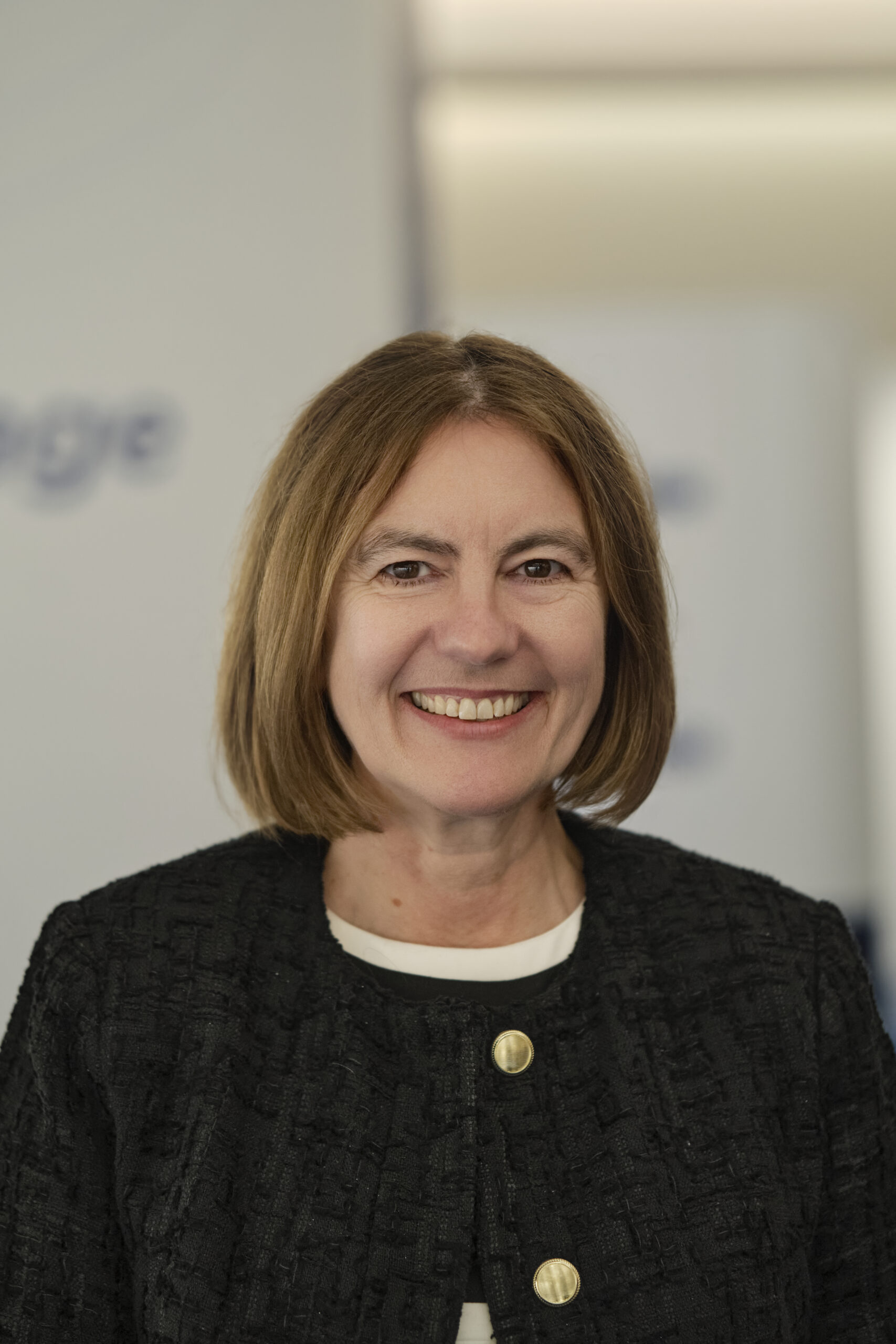 | CV Julie Green is Deputy Director General for CLIA in Europe. Julie joined CLIA in Europe in January 2020 as Vice President of Strategic Communications. Previously, Julie worked in a series of international roles in corporate PR and public policy, including heading up global communications for the infrastructure business at engineering firm Bechtel. During her time at Bechtel, she ran strategic communications and thought leadership programmes across multiple markets, including central and eastern Europe, and the Middle East. Julie has also served in the European Commission Directorate-General for Communication. |
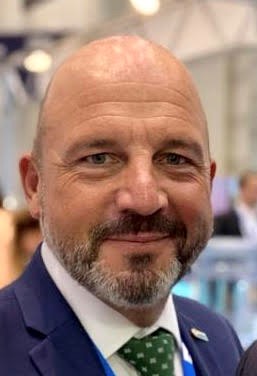 | CV Nicholas (Nicky) Guerrero Nicky was born and raised in the British Overseas Territory of Gibraltar. He was educated in Gibraltar and at Brighton Polytechnic, now the University of Brighton, UK. He is a graduate of hospitality. In his career he has worked in the hotel, hospitality and tourism industry and in 1997 joined the Gibraltar Tourist Board, where he carried out the roles of Product Manager and Sales and Marketing Manager. Nicky was then Chief Executive of the Gibraltar Tourist Board for the latter half of his time there, before retiring after twenty-four years at the Board in 2021. The Chief Executive’s role included an extensive programme of marketing the destination outside of Gibraltar. Other tasks included liaising with the airline industry, including route development and working extensively with the cruise industry. Nicky held the post of Director for Events and Partnerships on the Board of Directors of MedCruise, the Association of Mediterranean Cruise Ports. Nicky is the currently the Secretary General of MedCruise and the Director of the International Cruise Summit. In the past, Nicky has represented Gibraltar at the International Cruise Summit and at all MedCruise and Seatrade events, including Seatrade Cruise Global in the USA, for the last 25 years. Nicky is widely known and respected in the cruise, airline and tourism industry at all levels. Nicky is now an independent consultant and specialises in the cruise industry, airline industry, marketing and communications industry and has extensive experience in event management. Having had experience in broadcasting, one of his many strengths includes that of presenting and moderating events and discussion panels, as he has done in the past for the ICS, MedCruise and Seatrade. Nicky is a keen commercial aviation enthusiast and enjoys many extracurricular activities, including amateur dramatics. He is fluent in English and Spanish and is highly competent in French. |
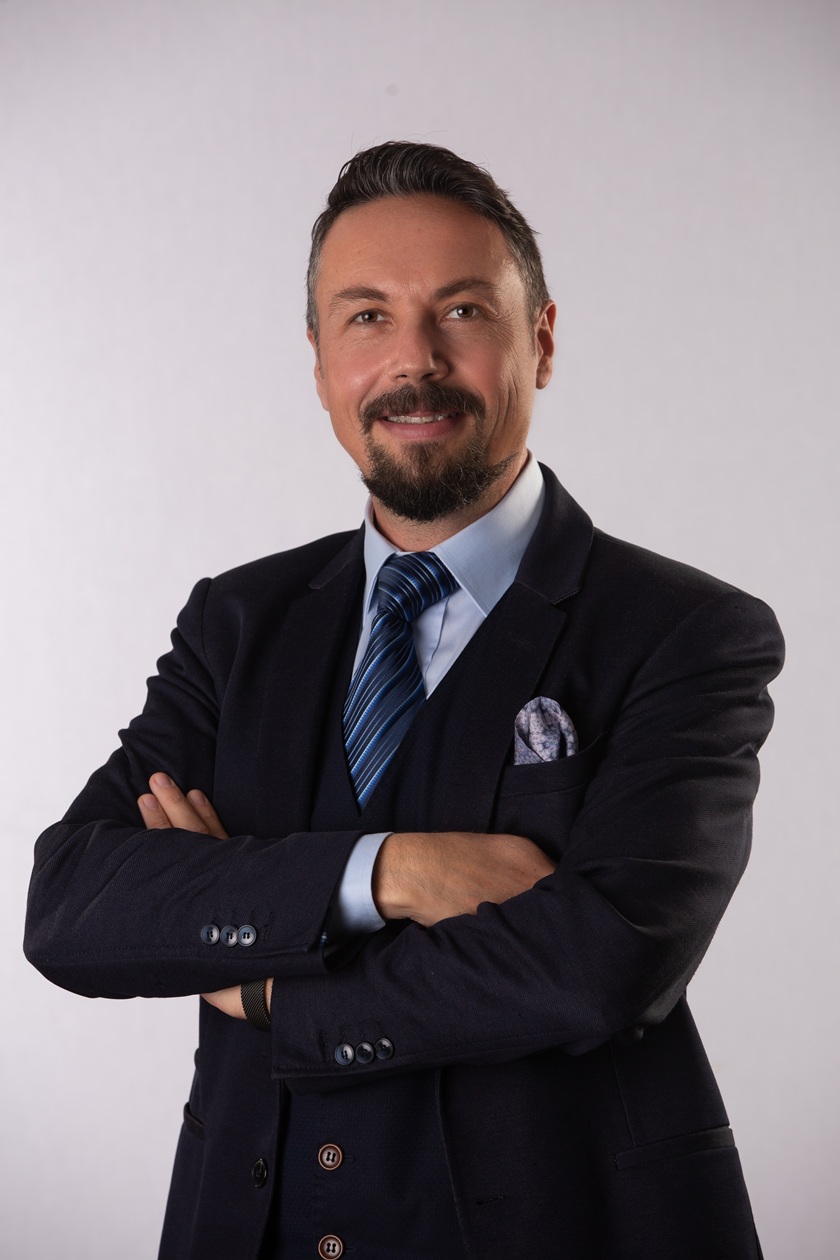 | CV Mr. Aziz Güngör is the GPH Regional Director of East Med. He also serves as the General Manager of Ege Port – Kuşadası Cruise Port since 2006. Prior starting its career at Global Ports Holding, he served not only as the Marina Manager of Setur Kusadasi Marina but also as the Sales and Marketing Director of Setur Marinas Group, a privately operated marina chain company of 11 marinas which is a subsidiary of Koç Holding, the largest private holding company in Turkey. Mr. Güngör was a board member of DTB – Turkish Marine Tourism Association between 2011-2013 and as a board member of MedCruise – The Association of Mediterranean Cruise Ports in 2014. At present, he serves as a board member of TÜRKLİM – Port Operators Association of Turkey since 2014. |
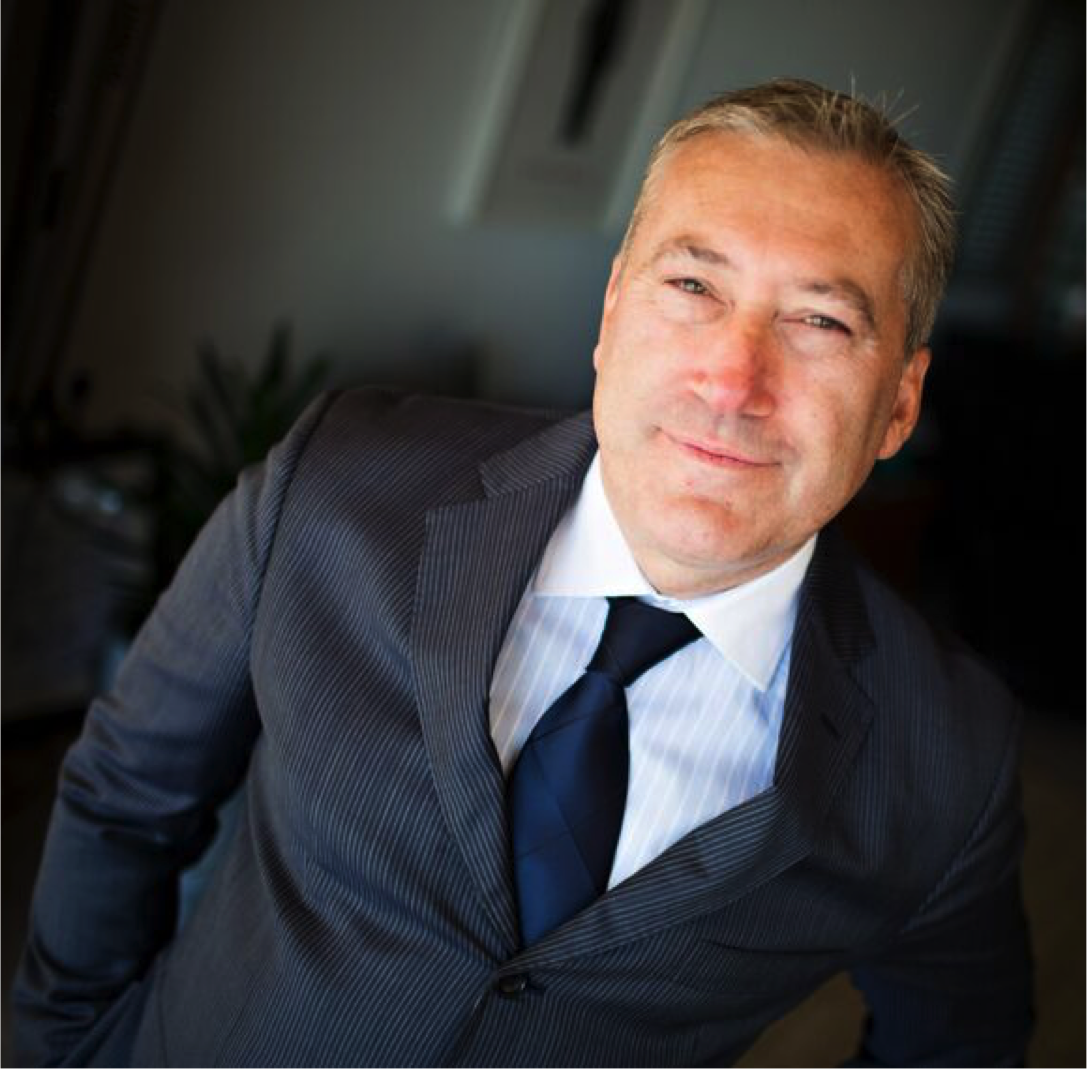 | CV Grant Holmes brings over three decades of exceptional leadership and expertise in the cruise and maritime industries. Starting his career in shipbuilding at HMS Dockyard in Portsmouth, he honed his skills through a master craftsman apprenticeship. His talent and drive propelled him through rapid, performance-based career moves, culminating in his appointment as Area Manager for a “Caribbean Gateway” with a leading UK tour operator by 1990. Holmes’ illustrious cruise industry journey began in 1999 when he was appointed as Director of Operations for First Choice Cruises, overseeing its inception and early success. His expertise in destination management was further solidified in 2000 when Festival Cruises appointed him as Director of Global Shore Excursions, Destination Services, Ground Handling, Tour Operations, and On-Board Revenue—a role he held until 2004. In 2006, Holmes founded Progress International, a consultancy providing training and strategic guidance to 12 cruise lines, as well as multiple governments and port authorities. Today, as Global Vice President of the Cruise & Superyacht Sector at Inchcape Shipping Services, Holmes spearheads Port Agency activities, Ground Handling and transformative “Cruise Destination” consultancy and engagement initiatives, collaborating with tourism authorities, ports, and stakeholders across the globe. His impressive portfolio spans the UAE, Oman, Qatar, Bahrain, Ras Al Khaimah, Indonesia, the Vanilla Islands (Mauritius, Réunion, Madagascar, Seychelles, Comoros, and Mayotte), Kenya, Zanzibar, India, Greece, Cyprus, Chile, Ecuador and the Bahamas. A trailblazer in shaping cruise and maritime excellence, Holmes is a sought-after thought leader in the industry, bringing his strategic vision, innovative approach, and wealth of experience to every project he undertakes. |
CV Dr. Anna Karadencheva is a Bulgarian lecturer at the Nikola Vaptsarov Naval Academy, Varna, where she obtained her PhD degree in “Organization and Management Outside the Sphere of Material Production.” She has a multidisciplinary academic background, enriched by studies at prestigious Bulgarian institutions, including, Military Academy “G. S. Rakovski” in Sofia, New Bulgarian University, and Varna Free University. Dr. Karadencheva’s research and professional interests focus predominantly on soft skills and leadership, sustainability, and gender equality in the maritime sector, contributing actively to these evolving areas of maritime scholarship. Dr. Karadencheva’s academic and professional endeavors are centered on enhancing the role of women in maritime professions, promoting soft skills development, and advancing sustainable practices within the industry. Her work contributes significantly to the evolving discourse on inclusivity and innovation in maritime transport. For more detailed information about her academic contributions and affiliations, please refer to her ORCID profile: https://orcid.org/0009-0006-6770-5197. |
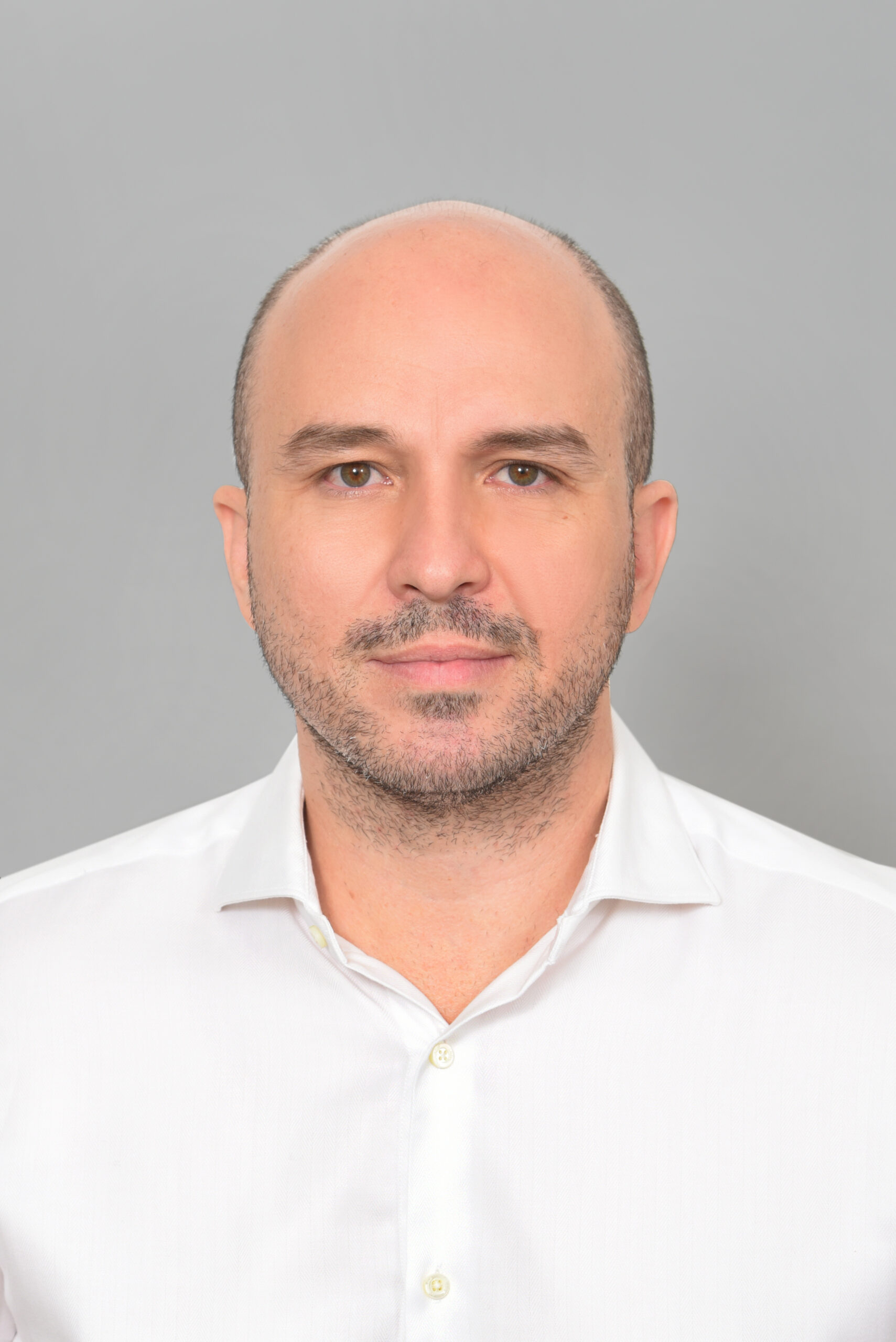 | CV Akis Konstantinidis is the Human Resources Manager at Technomar Shipping Inc., leading HR strategy, talent development, and employer branding initiatives. With a background spanning shipping, fintech, and banking, he has held key HR roles, supporting digital transformation and workforce development. His expertise includes organizational development, employee engagement, and shaping career frameworks that align with evolving industry needs. Akis actively collaborates with universities and industry stakeholders, bridging the gap between education and the maritime workforce. He frequently represents Technomar Shipping Inc. at HR conferences and forums, sharing insights on leadership, talent management, and future workplace trends. |
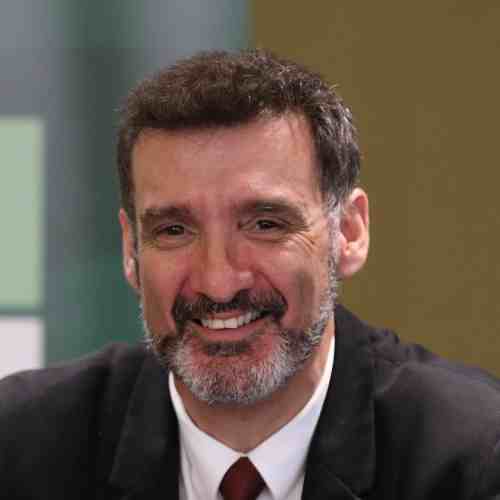 | CV Dr. Kyriakos Kotsoglou is a graduate of the Department of Production & Management Engineering of the Technical University of Crete, holds a master’s degree in business administration and a PhD from the Technical University with his thesis, “e-Governance and its contribution fighting Corruption and the improvement of public services to the Citizen”. He has participated in numerous research programs, is the author of (2) scientific books in the field of ICT, and is an adult educator with experience, since 1986, in collaboration with lifelong learning organizations such as the National Center for Public Administration, the Hellenic Association of Local Government, private and public education centers, etc. He is a member of the Delegation of the Technical Chamber of Greece, Western Crete Department, while he participates in several collectives. For the last 20 years, he has been actively involved in Local Government, holding positions of responsibility. Today, he is the Vice Governor for Tourism of the Region of Crete, while he is the owner and manager of the alternative tourism hotel, EVGE Experience Boutique Hotel. |
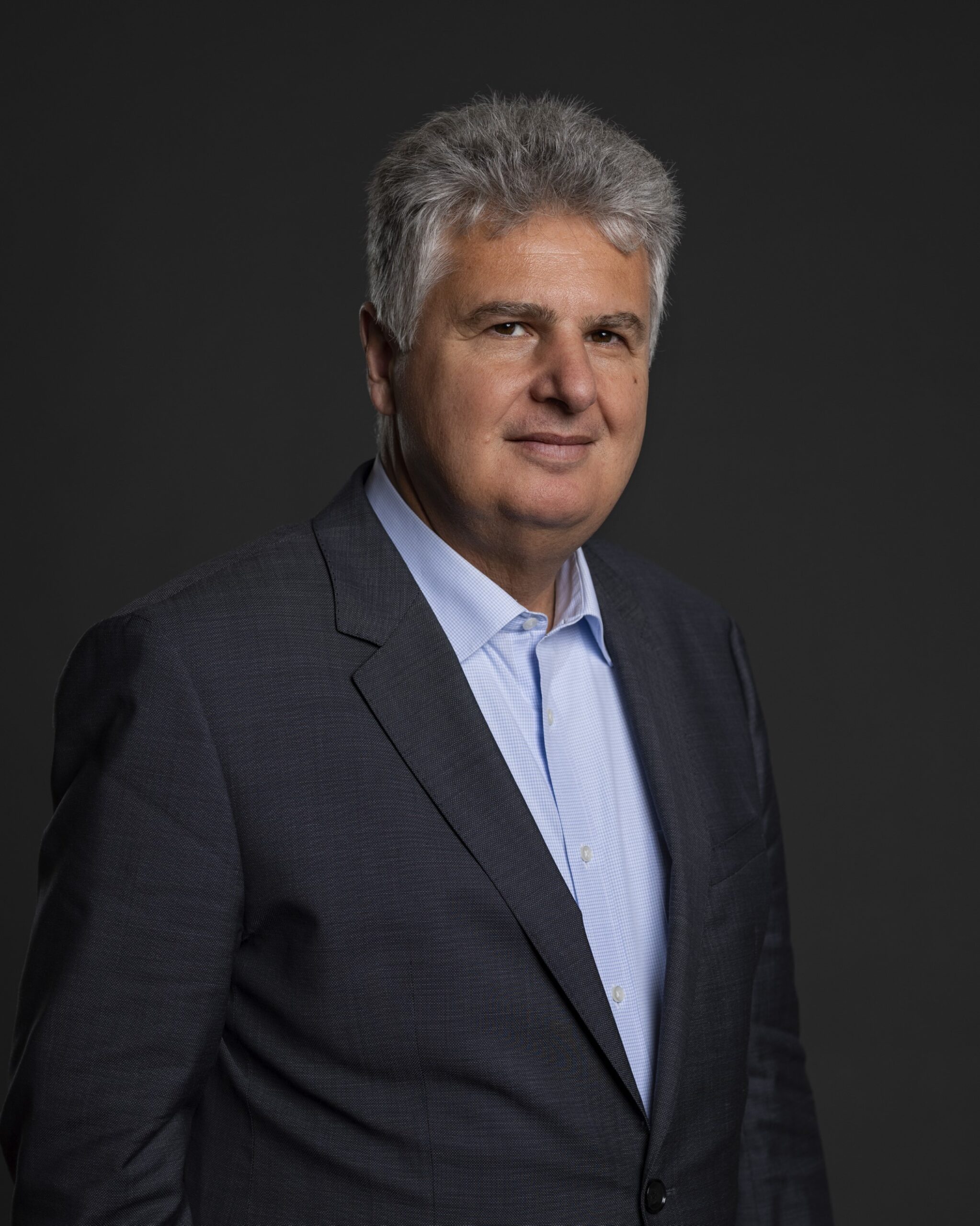 | CV Captain George Koumpenas, Chief Operating Officer of Celestyal, has been with the company since its inception in 2014. As Chief Operating Officer, Captain Koumpenas oversees the day-to-day operations of the company. Since 2004, Captain Koumpenas was with Louis Cruise Lines, and he started his career in the cruise industry in 1987 working on several cruise vessels as deck officer and captain. In 2000, he stepped ashore as Director of fleet operations for Festival Cruises. He has served as General Secretary of the Hellenic Cruise Ship Owners and Associated Members’ Union (EEKFN) since its founding and has been President of the union since April 2021. |
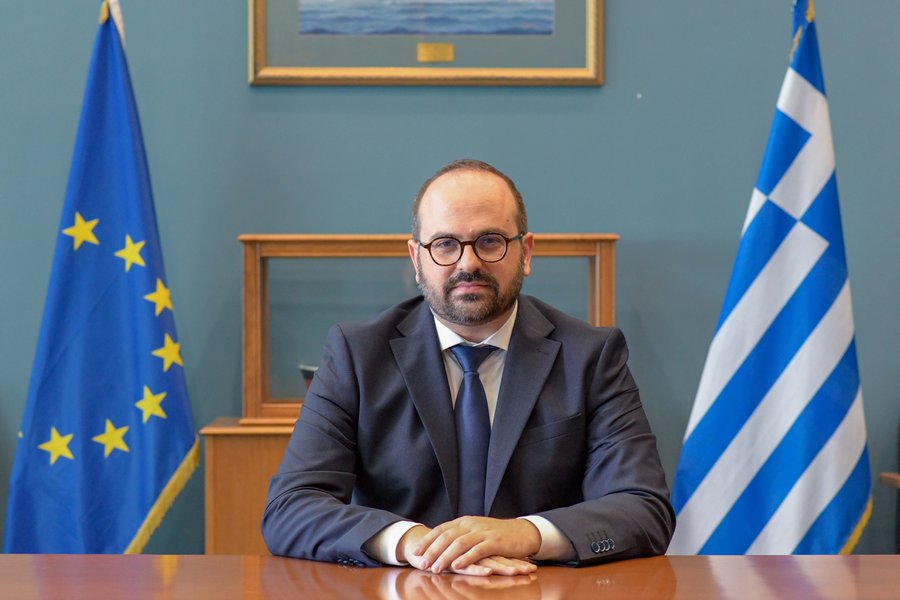 | CV Manolis Koutoulakis serves as a General Secretary of Ministry of Maritime Affairs and Insular Policy responsible for the Aegean and Insular Policy. He holds a Degree in Spatial & Urban Planning and Regional Development (Dip. Eng.) and has a MSc in Spatial Planning and Regional Policy. He is PhD candidate in International and European Relations at the University of Piraeus specialized in the research and analysis of the spatial and economic impacts of selected European policies in Greece. He served as a Special Advisor at the Ministry of Development and Competitiveness (2010-2012) on issues related to the evaluation of Public and Private Investments, preparation of special funding schemes for entrepreneurship and monitoring of implementation of Public Investments Program. During the period 2014-2015 he was a Special Advisor at the Ministry of Labor, Social Security and Welfare in the field of policy analysis and planning of Social Economy Programs, design of specific measures on the promotion of employment, formulation of Sectoral funding policy on Lifelong learning and Youth Guarantee Action Plan. He has participated as an expert in International and European Organizations on public sector reforms projects with an emphasis on Local Development and Public Administration. He has also participated or coordinated the implementation of numerous development studies and programs for Municipalities, Regions and has acquired specialization in European funding, strategic and operational planning for public authorities regarding blue growth, insularity and localization of EU cohesion policy. He was the head of the Liaison and Innovation Office at the University of Piraeus (2017-2019) and coordinator of the European Information Centre of European Commission Initiative “Europe Direct” for Piraeus and the Islands of Attica. From July 2019 until April 2021 served as a Special Advisor to the Minister of Maritime Affairs and Insular Policy on the management of European Policies for the sectors of shipping, maritime transport, maritime security and surveillance along with blue economy, insularity and management of the digital transformation of the Ministry. He was the head of the team responsible for the drafting and final presentation of the new legal framework on the Integrated Maritime Policy in the Insular Territory (Law 4832/2021). During his tenure as Secretary General for the Aegean and Island Policy, he deals with critical issues concerning the holistic management of water resources, the promotion of the European dimension of insularity in cooperation with European stakeholders, the protection of the built environment, the improvement of connectivity between islands, the strengthening of social cohesion and the cultural identity of the islands, etc. |
CV Mr. George Markezinis is a seasoned expert in Sustainability (ESG), with over 15 years of experience in training, reporting, ratings, and external assurance. He is HELMEPA’s ESG Senior Officer and METAVASEA Project Manager, as well as the co-founder of ECOSKILLS. As a Certified GRI Trainer (certified through the GRI Professional Certification Program), he has designed and delivered professional training programs across Europe, Asia, North America, and Africa, helping companies and professionals navigate the evolving ESG landscape. His areas of specialization include Corporate Sustainability, Sustainability Reporting, Carbon Footprint Reduction, ESG Performance, and ESG Ratings. He has extensive experience providing consulting and training services to organizations across a wide range of industries, including shipping, financial services, FMCG, energy, pharmaceuticals, telecommunications, healthcare, and insurance. Mr. Markezinis is also active in academia, having designed and taught undergraduate and postgraduate courses on topics such as Environmental Management, Climate Change, Sustainable Development, Environmental Engineering in the Maritime Sector, and Environmental Science. He has developed deep expertise in materiality assessment, stakeholder engagement, ESG strategy and reporting, benchmarking ESG ratings, and external assurance. |
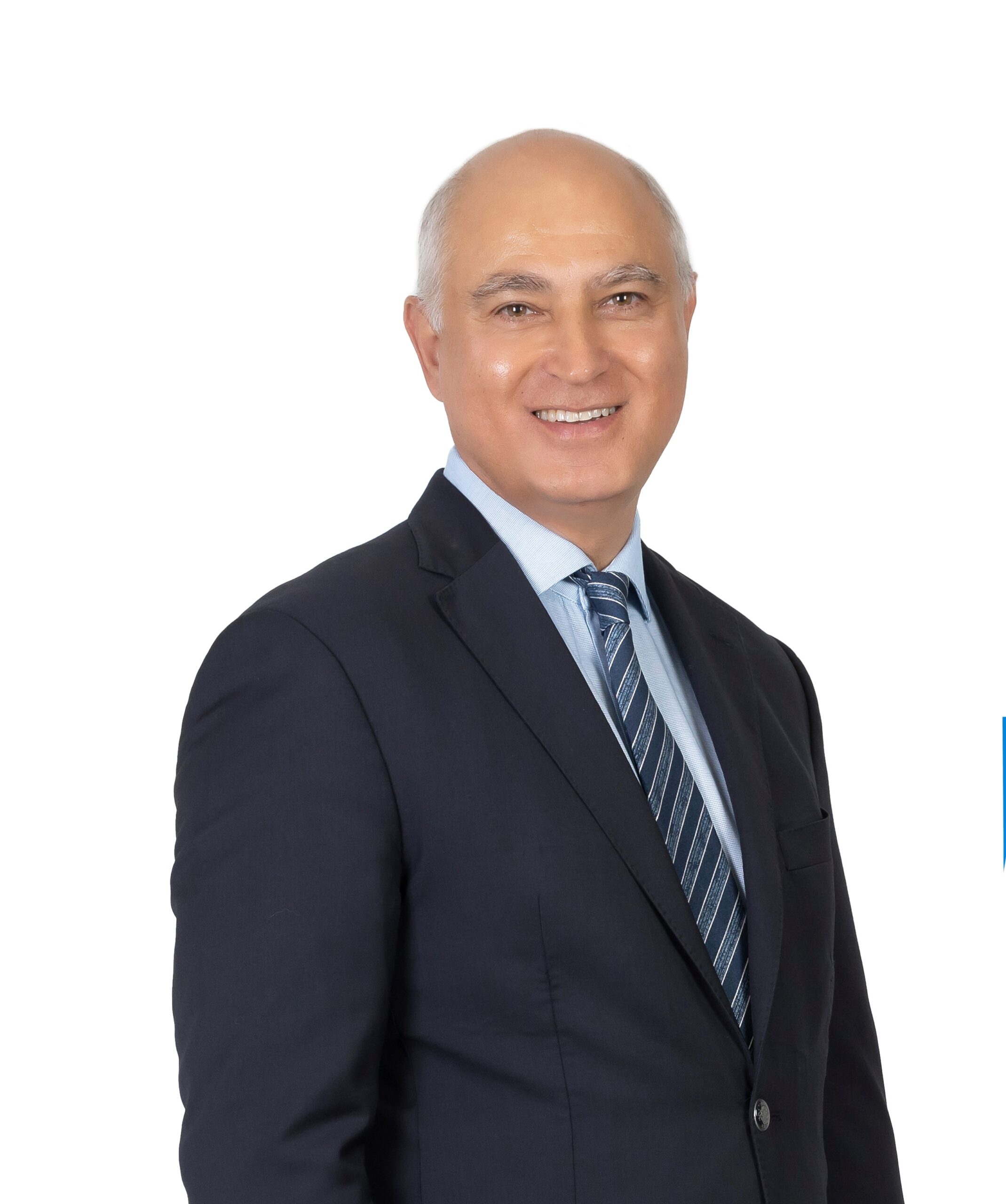 | CV Mr. Nikolaos Mavrikos, born in Port-Said Egypt, is married and father of 2 children. Graduated (E. M. C. S) of the Department of Management–Business Administration. He has a 35-year professional experience in the relevant industry branch. Representative of the following associations: |
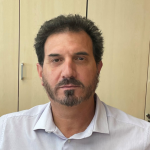 | CV Capt. George Mavrogenis is a highly skilled Master Mariner with extensive experience on board Oil Tankers and LPG vessels, currently Marine Manager for a Latsco Marine Management. Very experienced on navigation and safety matters, an excellent team player with proven ability to work under pressure and meet strict deadlines, continuously seeking ways to improve the performance and efficiency of the business. |
CV Emmanouil Nikolaidis is a Maritime Economist and Business Consultant. He founded and run as Managing Director Premium Consulting, a Business Consulting and Development company, since 2006. He is also teaching at Frederick University since 2006, holding the position of Assistant Professor on Maritime Economics and International Trade since 2019. Emmanouil graduated from the Marine Academy and served as officer onboard tanker and product carriers. He studied Economics (BA in Maritime Economics, MSc in Shipping Business and International Trade and PhD in Maritime Economics and International Trade). He is author of several articles, presentations, papers and two books in the topic of shipping economics and International Trade. Emmanouil is experienced in project management and financed projects for the public and private sector. He has extensive experience and expertise in project evaluation, project funding and project implementation. He is highly skilled in communications and business development in many countries worldwide (European, African and Asian markets). His particular research interests lie on the fields of sustainable shipping markets, maritime economics, international trade, clustering and project finance. For over 25 years, he continues to be involved in more than 150 EU funded projects under CEF, HORIZON, Interreg, LIFE, Erasmus+ and Transnational, Sectoral and Regional Calls for more than twenty-five years. He is member of the Greek Union of Economists, the International Association of Maritime Economists and Secretary General of Nautical institute (Hellenic Branch). |
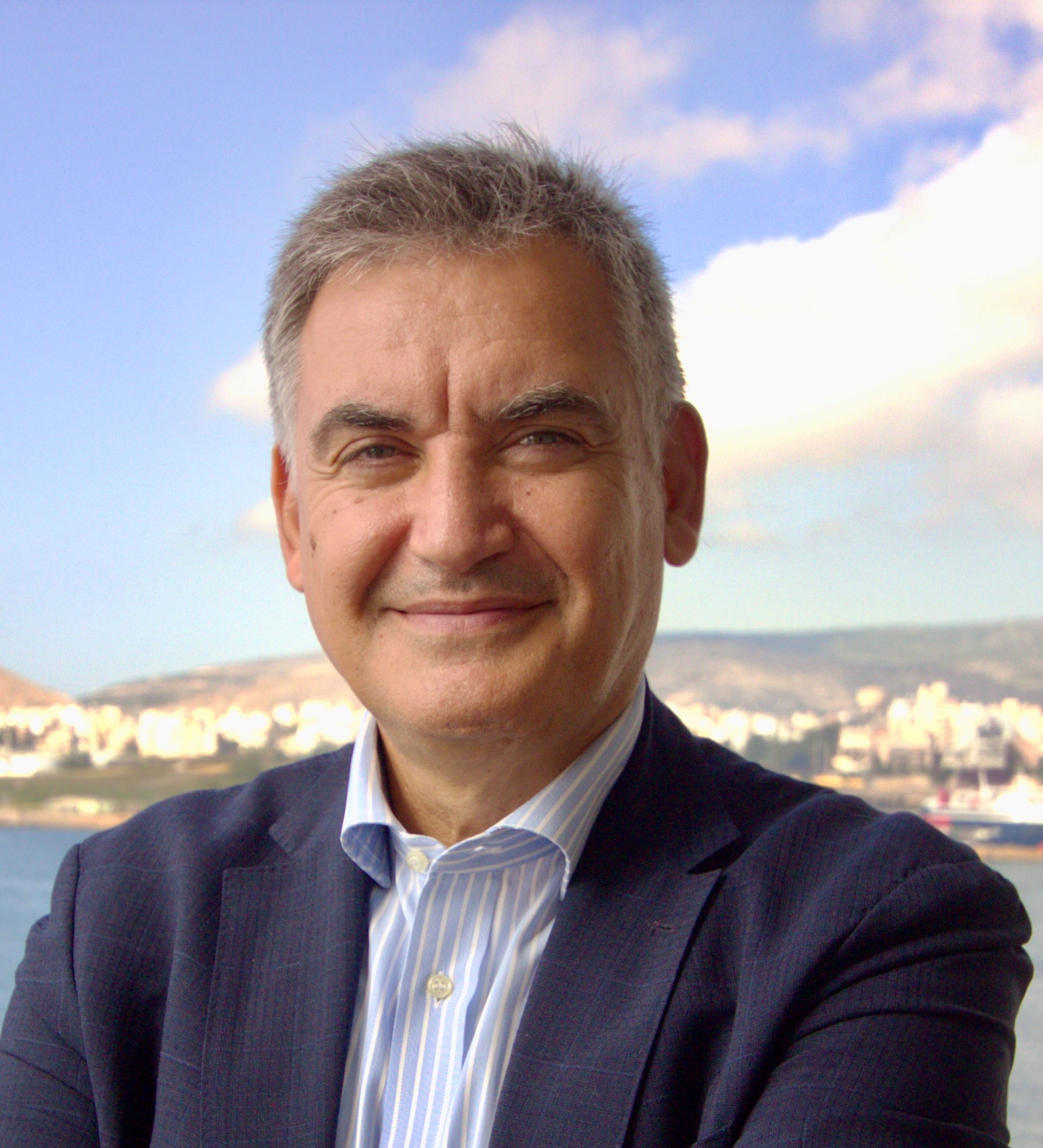 | CV Thanos Pallis is Professor of Maritime and Port Economics at the Department of Maritime Studies, University of Piraeus, Greece, and co-director of PortEconomics. A member of the International Association of Ports and Harbors (IAPH) Cruise Committee, he has served as Secretary-General of MedCruise. His record includes studies for OECD on cruise and urban development and consultancy work for Cruise Europe. In 2024, he was listed in the top-2% of most cited researchers in the realm of transportation and logistics around the globe. He served as President of the International Association of Maritime Economists (IAME), and General Secretary for Ports & Port Policy, Ministry of Shipping, Greece. He co-authors the book Port Economics, Management and Policy. |
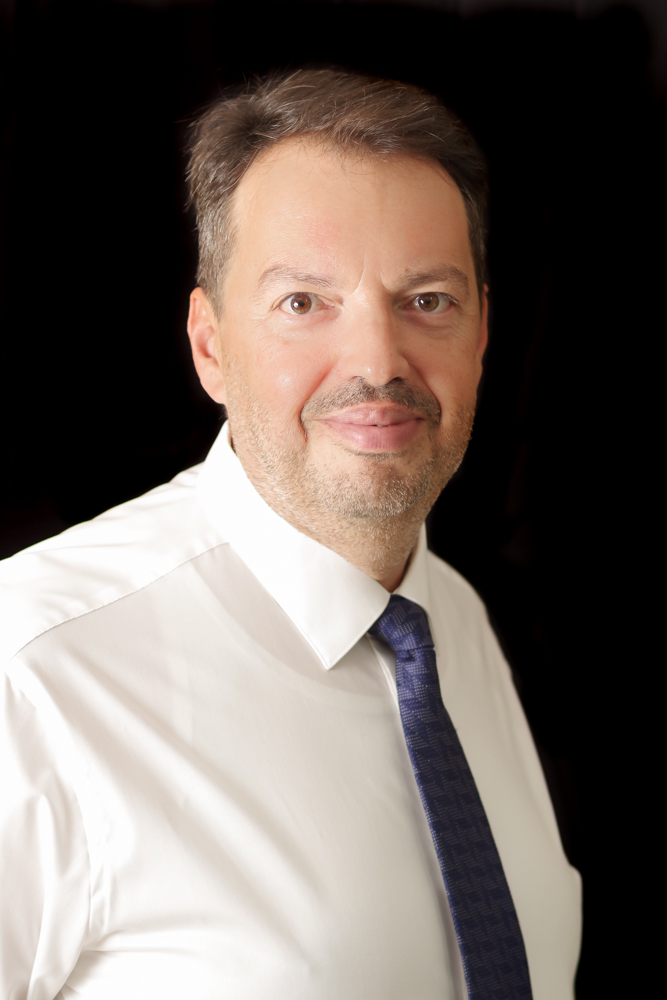 | CV Minas Papadakis is a visionary leader at the helm of the Heraklion Port Authority, serving as CEO since January 2020. With a distinguished background in finance and strategic management, he has redefined the port’s trajectory, spearheading major infrastructure projects, boosting operational efficiency, and positioning Heraklion as a dynamic player in the global maritime landscape. Before his tenure at the port, Minas built an impressive career in the financial sector, holding executive roles at EFG Eurobank Equities, where he led the Private Clients division. His expertise in high-level financial strategy and corporate governance also earned him board positions at Minoan Lines and A. Papadakis-Technometal. Under his leadership, Heraklion Port has embraced cutting-edge digitalization, smart technologies, and sustainability initiatives, ensuring its competitive edge in an evolving industry. A strong advocate for green innovation, he has driven ambitious projects to reduce the port’s carbon footprint and enhance environmental stewardship. His ability to cultivate strategic partnerships with shipping companies, local enterprises, and governmental bodies has been instrumental in accelerating the port’s transformation. Minas holds an MBA from the Management School of Imperial College, London University, and a degree in Chemical Engineering from the Aristotle University of Thessaloniki. A thought leader in his field, he has shared his expertise by teaching Project Management and Financial Management at the Technical Chamber of Greece, North College, and the Hellenic Management Association. A firm believer in progress, innovation, and sustainability, Minas Papadakis continues to shape the future of Heraklion Port, driving it toward new heights of excellence and international prominence. |
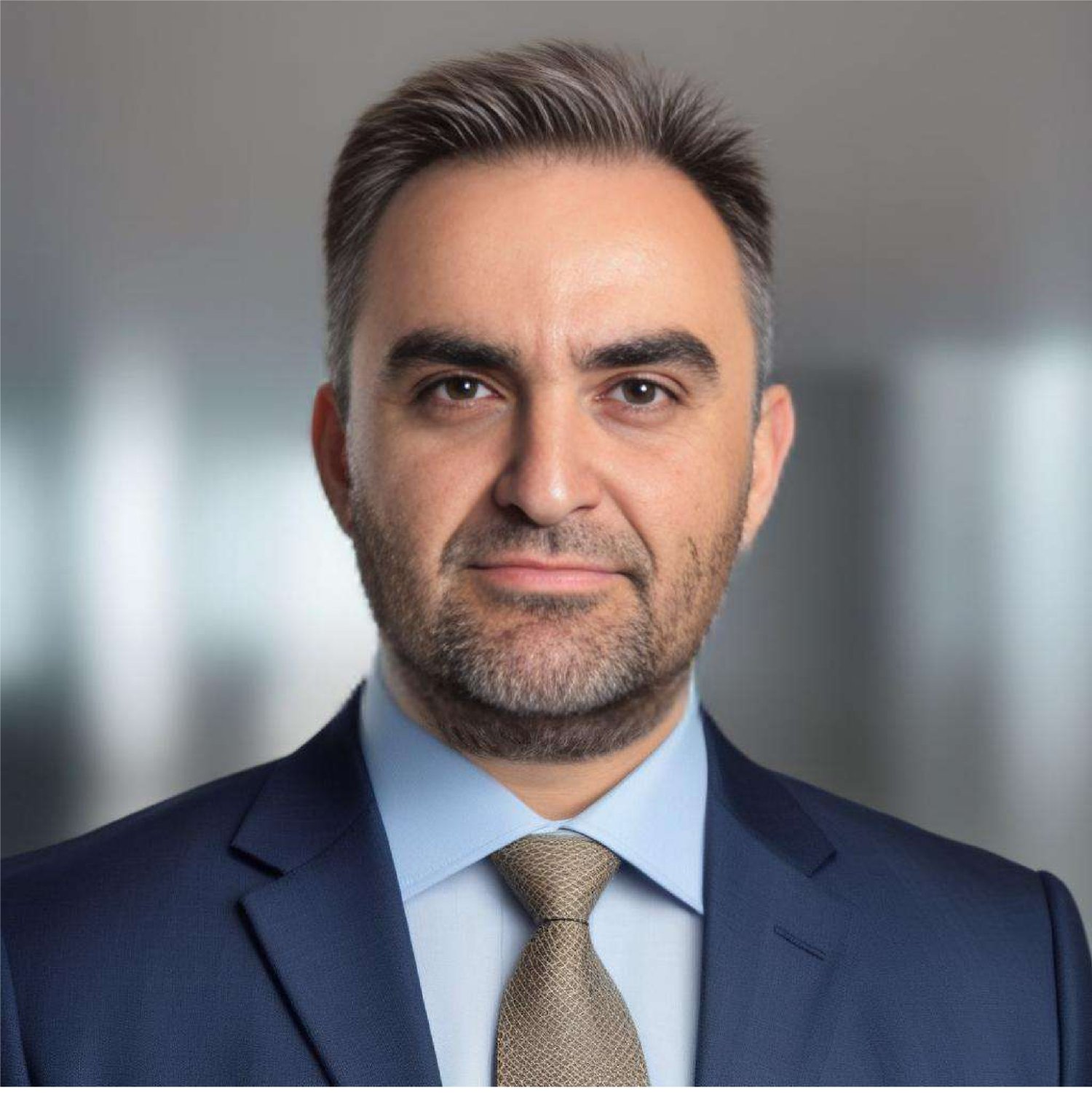 | CV Dr. Ioannis Pappas, Founder & CEO of GREEN EVOLUTION, is a Mechanical Engineer with a PhD in Applied Mechanics and over 33 years of experience in engineering, advancing sustainability and climate change solutions. As GSTC Director for the Mediterranean Region and EU Destinations Stewardship, he is a prominent advocate for sustainable tourism, guiding destinations, hotels, and tour operators in adopting global sustainability standards and practices. He is a GSTC Assessor for Destinations, Consultant for Sustainable Tourism Certification Standards, and Approved Trainer and Assessor for GSTC in South East Europe Region. Since 2025, he is European Climate Pact Ambassador and EUI-IA Expert, working to enhance climate resilience across Europe. His expertise has made him a sought-after speaker at high-level events organized by the European Commission, governments, universities, and global platforms such as Google and GSTC. |
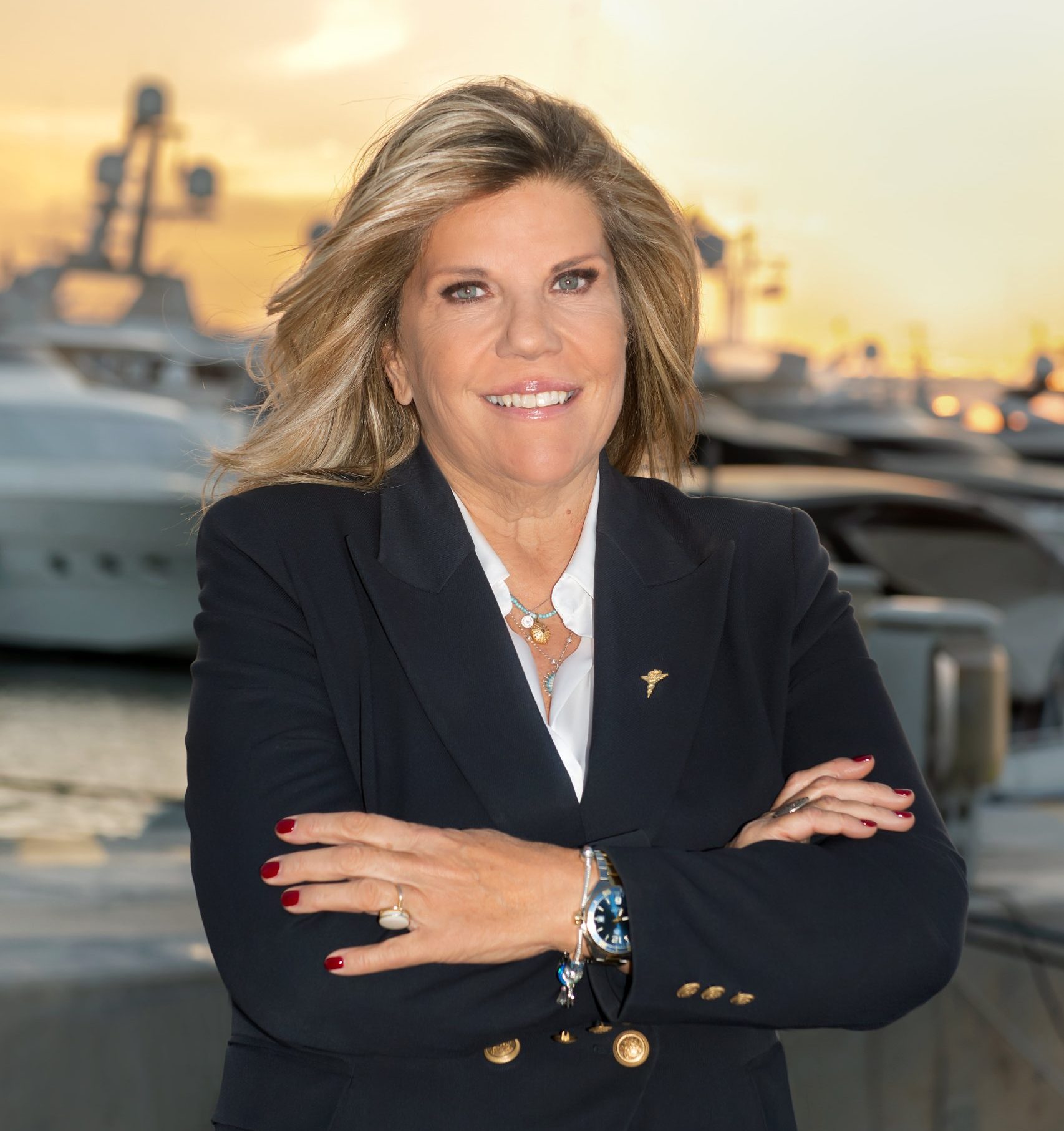 | CV Gina Polemi is the President HCPY (Hellenic Committee for Professional Yachting), Managing Director of Regatta Plus and President of PYRA (Private yacht’s Representatives Association). Born and raised in Piraeus, with deep familial ties to the island of Andros, Gina Polemi is a seasoned professional in the yachting industry, with a profound understanding of yacht operations, management, and business development. Leveraging years of experience in the field, Gina is the Founder and Managing Director of Regatta Plus, a boutique company that she established to honor maritime excellence and the rich history associated with the yachting world. Regatta Plus offers a comprehensive range of services, including yacht agency, management, chartering, and brokerage. In addition to her leadership at Regatta Plus, Gina is actively involved in the broader yachting and business communities. She has been a Board Member at the Piraeus Chamber of Commerce & Industry (PCCI) since 2017, serves as President at HCPY, and holds the position of President at the Greek Private Yacht’s Association. Gina’s expertise and dedication make her a prominent figure in the yachting industry, known for her ability to maintain composure and excel under pressure, ensuring safe and successful operations both on board and ashore. Her dream is for Greece to become the biggest home port for yachting. |
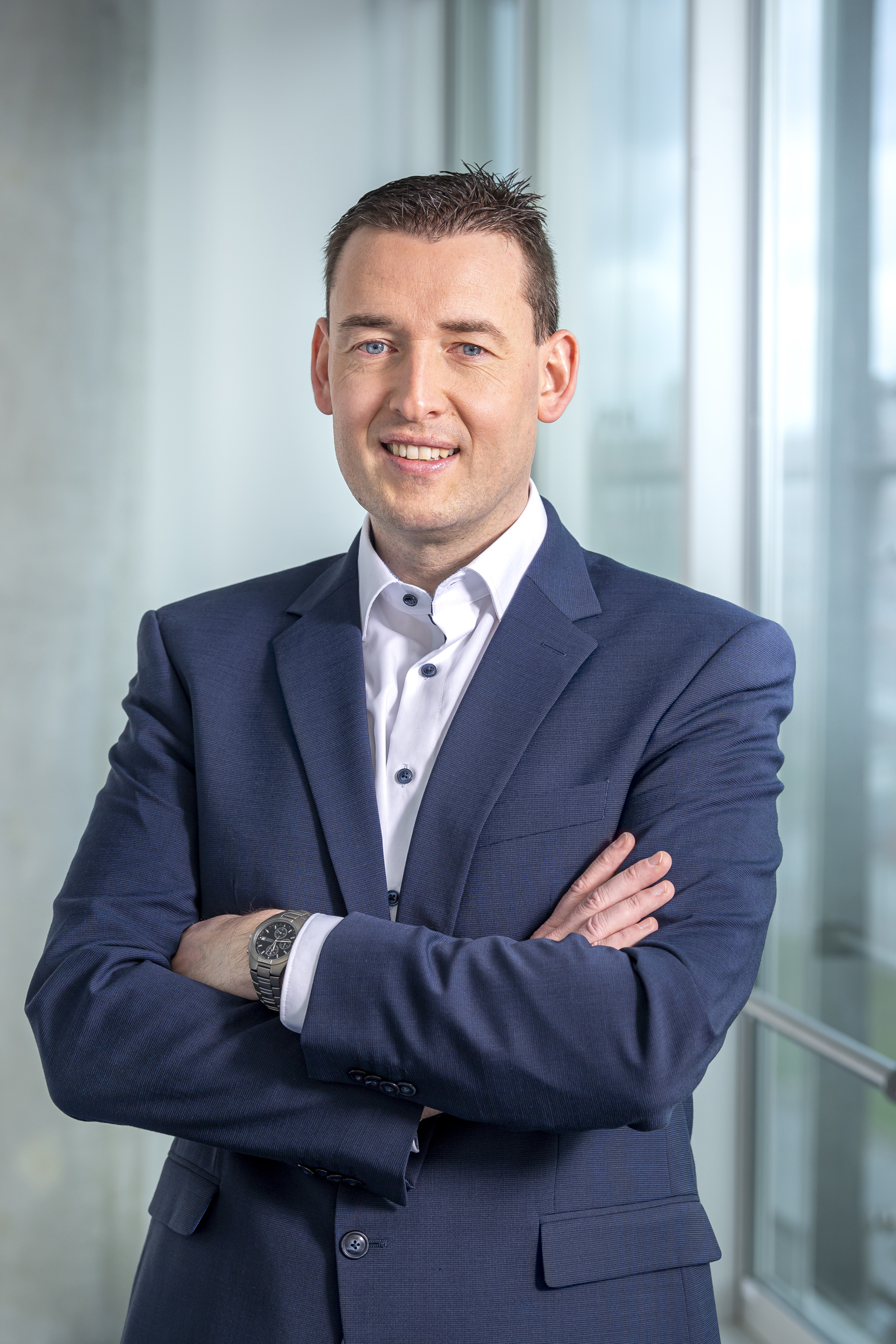 | CV Marcus Puttich, a certified ship agent by the Hamburg Chamber of Commerce, started his career in the port agency department of Biehl & Company in the ports of Houston and New York. Before joining TUI Cruises in January 2014, Marcus received Bachelor of Arts degree in Cruise Industry Management from the Bremerhaven University of Applied Sciences and graduated with a Master of Science with Distinction in Maritime Operations from the Liverpool John Moores University. Marcus currently holds the position of Director Destinations at TUI Cruises and is in charge for all operational, planning, sourcing and development aspects of Port Operations (both brands Mein Schiff and Hapag-Lloyd Cruises), Tour Operations and Ground Operations (only Mein Schiff). His responsibilities include, but are not limited to, the port agency, ground agency and tour operator selection, as well as the governmental, economic and operational aspects for all ports of call, as well as strategic decision-making in the port operations, ground operations and tour operations of TUI Cruises. |
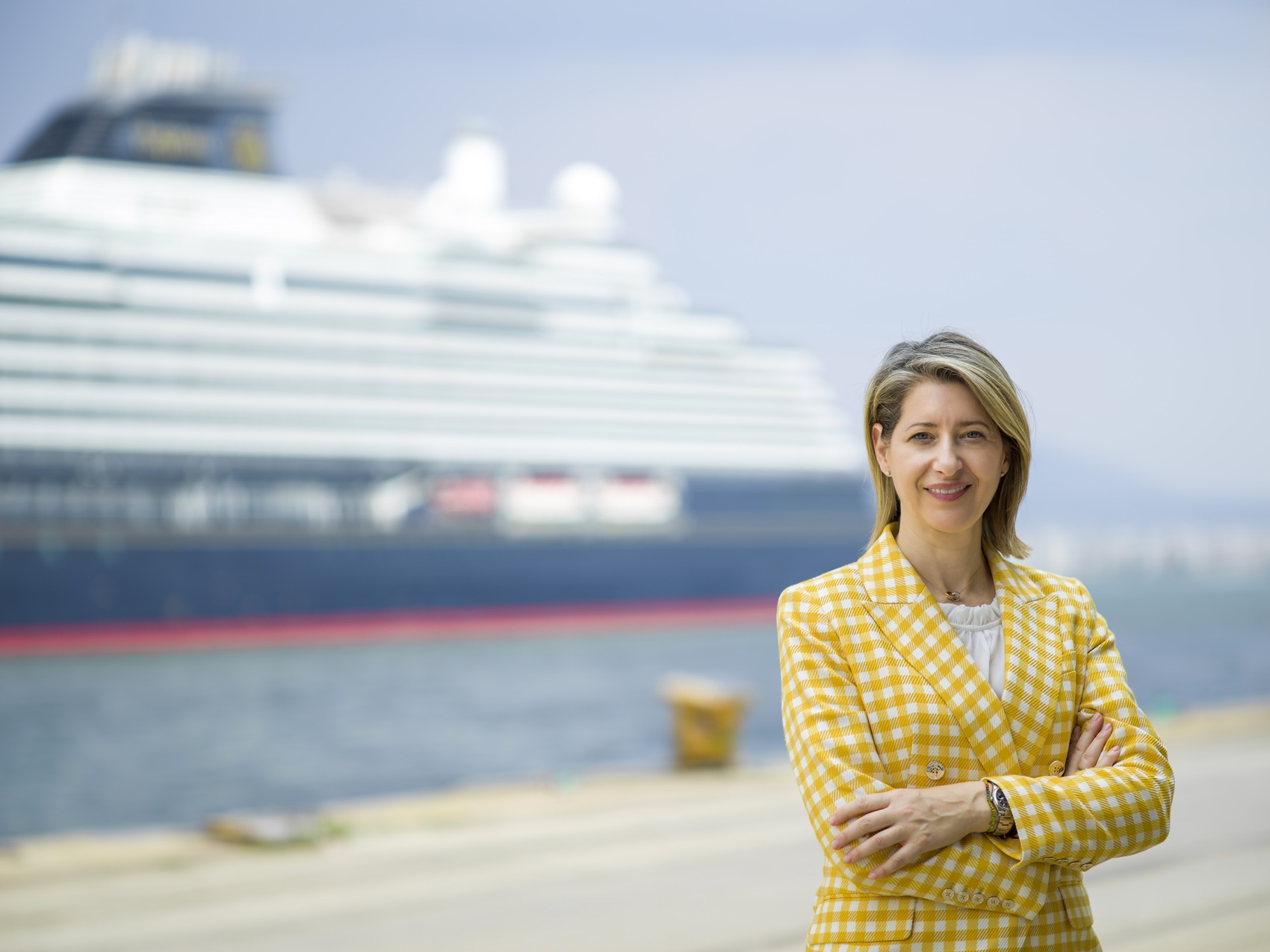 | CV Theodora Riga is the President of the Corfu Port Authority. Born in 1973 in the USA, she holds an MBA in Business Administration and has held senior managerial positions in port, shipping, and financial services companies over the last 20 years. She has served as a Board Member of a shipping company listed on the Athens Stock Exchange, as Commercial Director, and as Management Consultant on Strategic Development, Sales, Marketing, and Communication in some of the largest shipping companies in Greece, providing communication support to the Association of Shipping Companies. Prior to her current role, she was the Chief Commercial Officer & Director of Strategic Communications of ThPA S.A. – Port of Thessaloniki, a Member of the Board of Directors of the Thessaloniki Tourism Organization, and the Hellenic Chamber of Shipping Representative on the Hellenic Government’s National Cruise Committee. |
CV Dr. Ioannis Salamouris is the President and a founding member of knowl S.E. for Lifelong Learning, with over 15 years of academic experience and active teaching in MBA, MSc, and postgraduate programs in Greece and abroad (University of Thessaly, Henley Business School, etc.). He has been awarded a Teaching Excellence Award from the Athens University of Economics and Business (AUEB), and specializes in behavioral finance and behavioral entrepreneurship. He has designed and implemented educational programs for international organizations such as Prince’s Trust International and the European Commission, focusing on entrepreneurship and soft skills. Dr. Salamouris holds a degree in Business Administration from the Athens University of Economics and Business, an M.Sc. in Accounting and Finance from the University of Essex, and a Ph.D. in Finance from the University of Manchester. He is an Honorary Member of the Global Advisory Council of the Global Academy of Finance and Management and a key member of the Institutional Interventions Team of the Federation of Hellenic Associations of Young Entrepreneurs (OESYNE). |
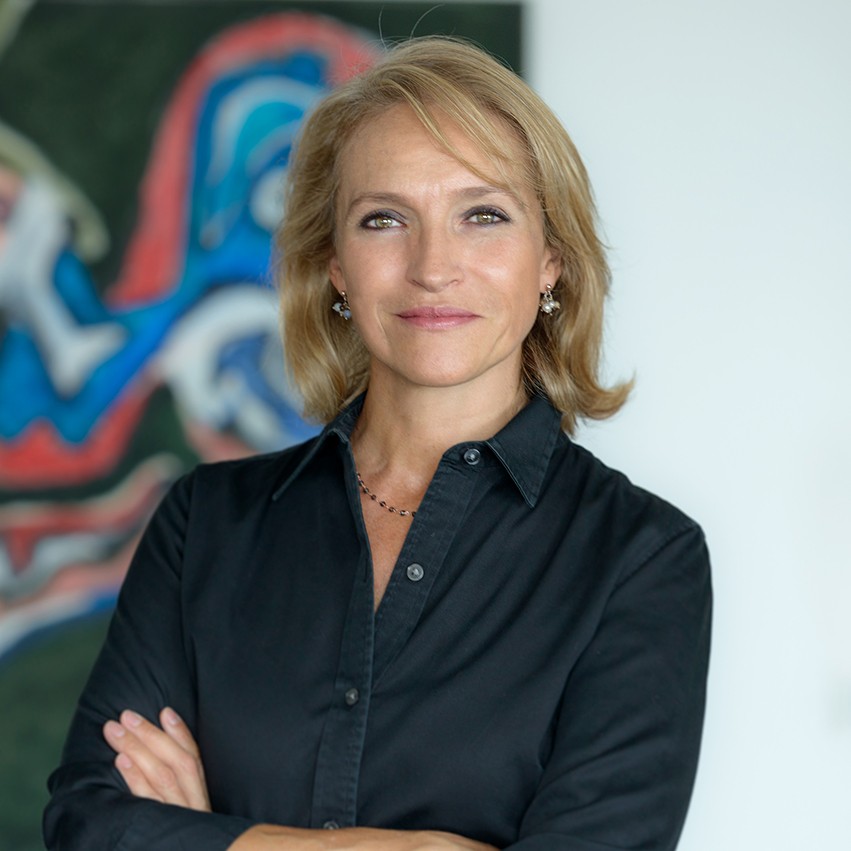 | CV Ana Karina Santini is the Associate Vice President of Destination Development, International, overseeing the EMEA and APAC regions at RCG. In this role, she leads strategic initiatives that drive growth and innovation in the global cruise and tourism sectors. Her responsibilities include shaping destination development strategies, managing key international partnerships, and contributing to the development of new port infrastructures. With a career rooted in international relations and strategic development, Ana Karina’s academic background includes degrees in Political Science, International Relations, and Economics from renowned institutions such as the University of Córdoba, University of Bologna, and University of Genoa. Her expertise is complemented by experience at the European Commission’s DG1 International Cooperation in Brussels. Her professional journey began in 1997 when she became Secretary General of MedCruise, marking the start of her significant contributions to the cruise industry. She later founded her own consultancy firm, advising ports, cruise terminal operators, tourism boards, and other stakeholders across the Mediterranean and Latin America regions. Ana Karina’s career reflects a unique blend of global strategic foresight, operational expertise, and deep knowledge of international cooperation, establishing her as a respected leader in the field. |
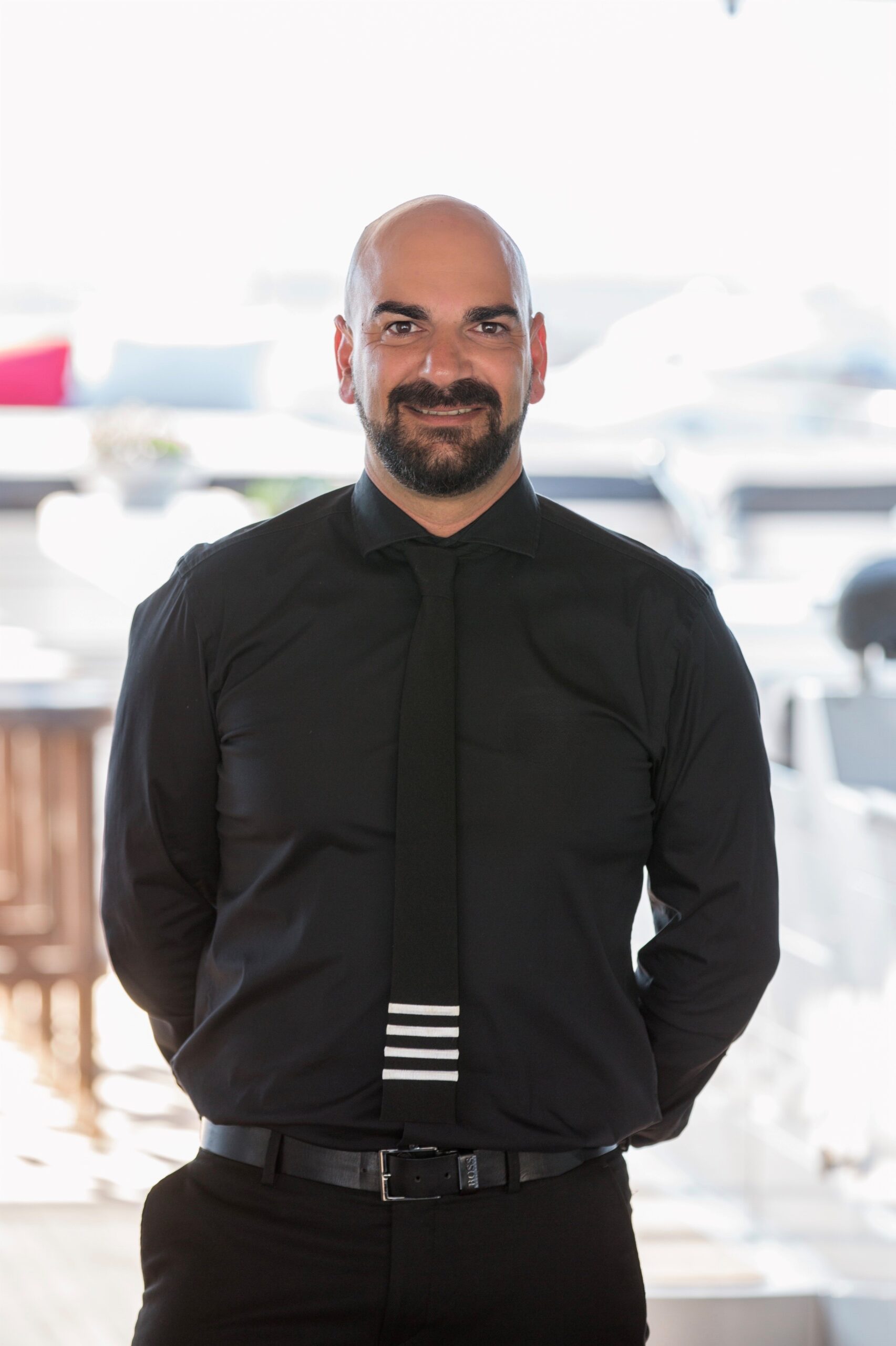 | CV Captain Stelios Sarafoglou is a Master Unlimited with extensive experience commanding private and charter yachts worldwide, including in polar regions. He holds a postgraduate degree in Shipping Management and has led operations on vessels up to 90 meters, navigating challenging waters such as Antarctica, Patagonia, and the Mediterranean. With over two decades in the maritime industry, Captain Stelios brings deep expertise in yacht internal management, regulatory compliance, and the leadership of multinational crews, consistently ensuring operational excellence and exceptional guest service. |
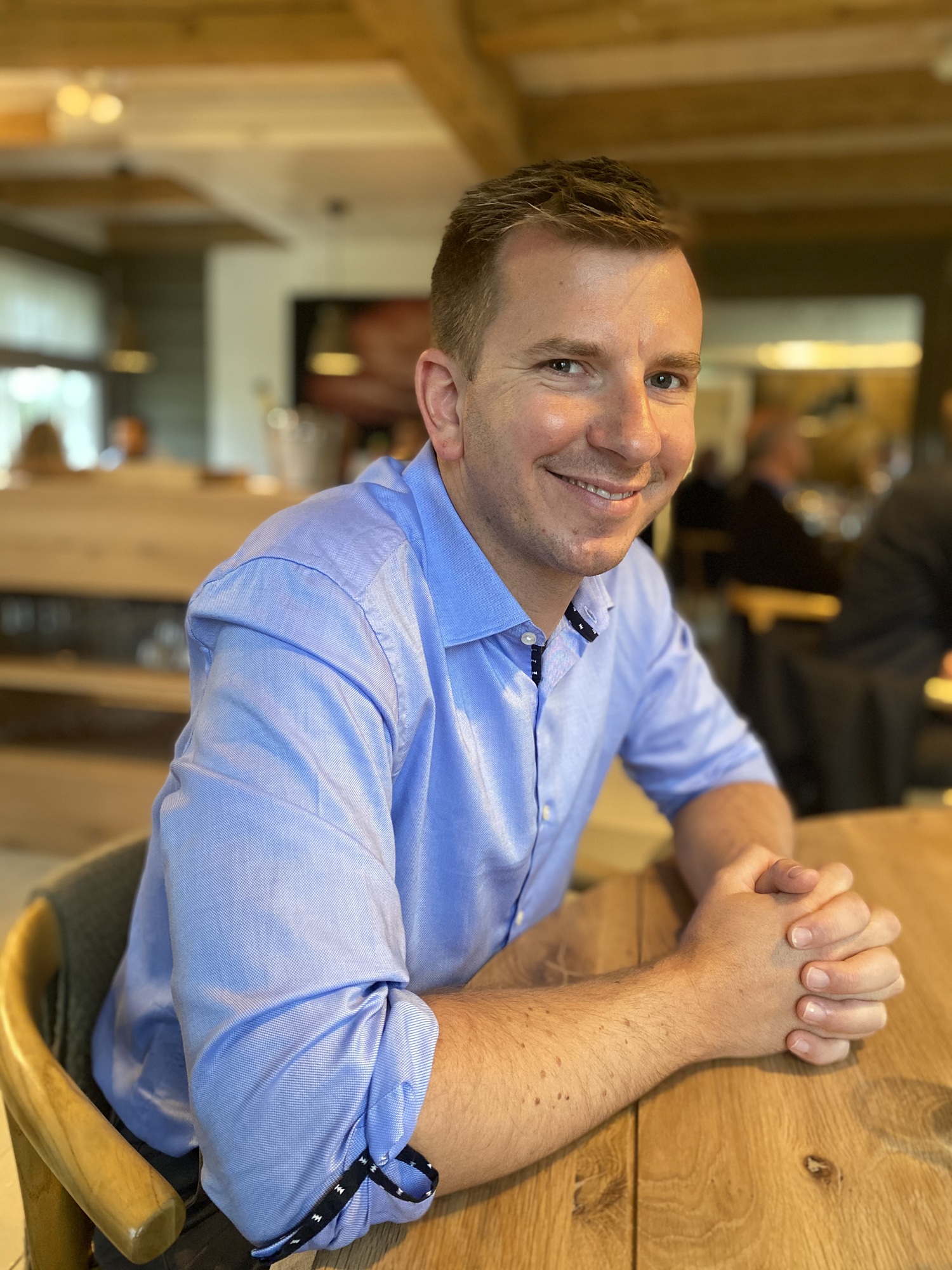 | CV With over 20 years’ experience in the cruise industry, Adam Sharp is responsible for the development of strategic port and destination related projects. Adam’s in-depth knowledge of ports and infrastructure worldwide is garnered from his ten plus years’ worth of experience in port operations as well as time spent in sales in the UK & Ireland. In Destination Development, Adam has been working in both EMEA and APAC responsible for the creation of infrastructure and holistic destination projects for Royal Caribbean Group. |
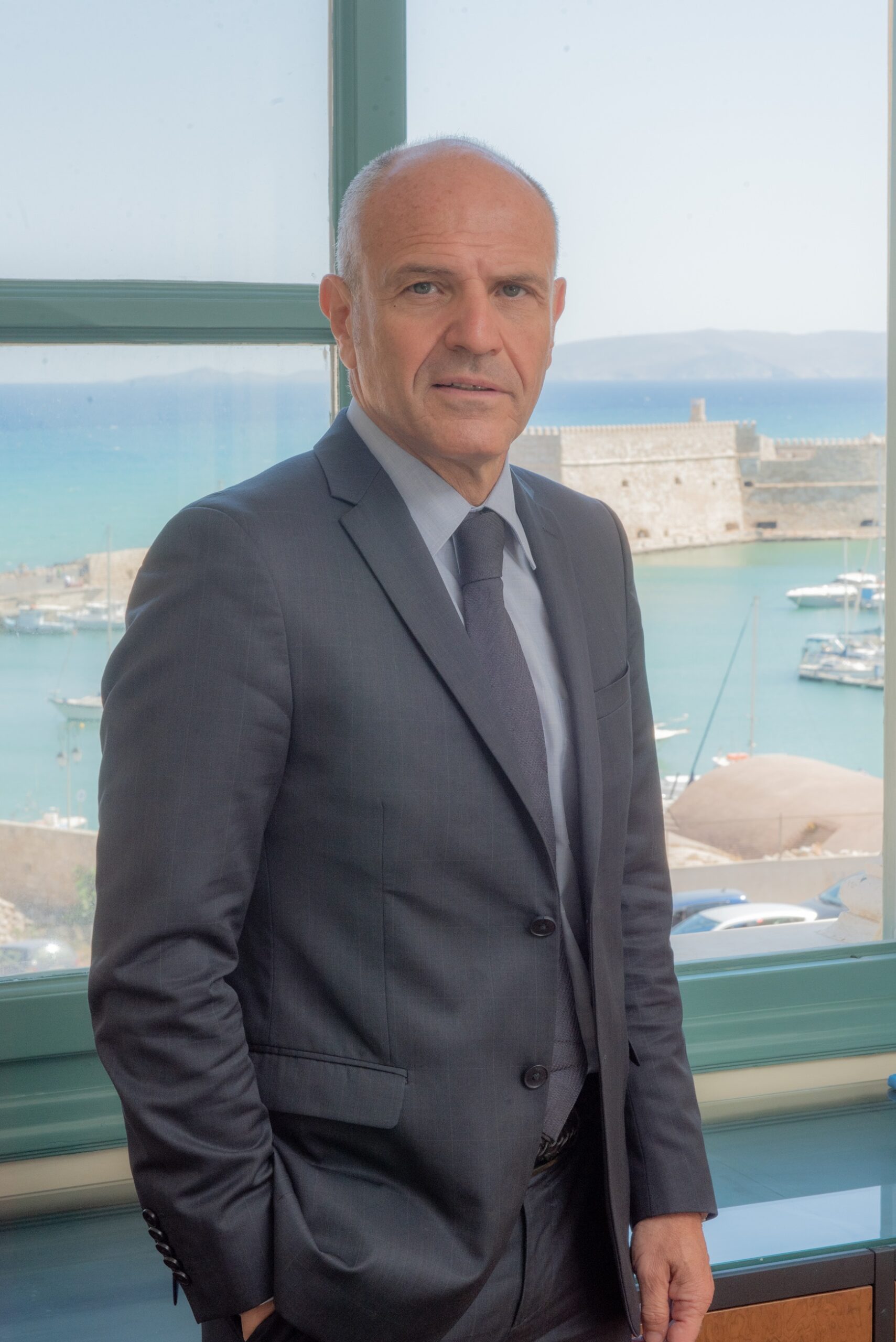 | CV Mr Loukas Sigalas assumed duties as Managing Director of MINOAN LINES in June 2022. He is a graduate of the Law Department of the Law School of the National and Kapodistrian University of Athens, while he also holds a Merchant Marine Financial Officer Diploma from the Ministry of Maritime Affairs & Insular Policy. He has professional experience in the coastal shipping sector for more than 35 years, as a Senior Executive of shipping companies. From 2006 to the present, he has joined the workforce of MINOAN LINES (a member company of the GRIMALDI GROUP) assuming duties in senior management positions, contributing greatly, with his long-standing experience and specialized knowledge, to the development of the company, both at a strategic and operational level. He has been elected Member of the Board of Directors of Igoumenitsa Port Authority and Heraklion Port Authority. He served for two years as an Advisor and Representative of the Panhellenic Association of Coastal Shipping Owners. He is also a member of the Greek Committee of the Italian Classification Society RINA, the Association of Passenger Shipping Companies, as well as the Association of Greek Ports. He participates in national and international maritime conferences with speeches, proposals and presentations. He speaks English, Italian and French. He was born in Piraeus. He is married and father of one child. |
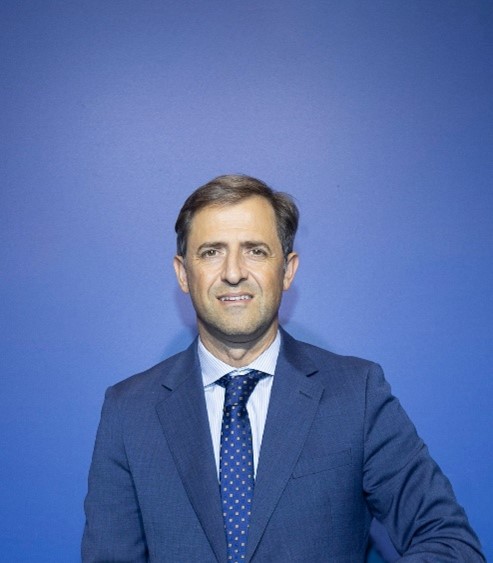 | CV Gregory Spourdalakis is the Managing Director of Columbia Shipmanagement Greece, a leading ship management company overseeing a diverse fleet of vessels. He has been in this role since December 2023, following his tenure as General Manager for more than three years. With over 20 years of experience in the maritime industry, he possesses a strong background in marine engineering, project management, and international shipping. His expertise includes ship repairs, conversions, fleet upgrades, and implementing innovative solutions to optimize efficiency, safety, and sustainability. He is committed to delivering high-quality ship management services, ensuring compliance with international standards, and enhancing customer satisfaction.
|
 | CV Chrysanthi Stefanou is Managing Director of her family-owned group of companies, all in the shipping industry. She belongs to the 2nd generation of ownership, starting her career in 2008, following in the footsteps of her father. Her experience expands from the field of crew manning, providing Filipino seafarers to Greek shipping companies with Bright Maritime Corp., to the merchant shipping sector, owning bulk carrier vessels, with Bright Navigation Inc. and Sea Gate Navigation Ltd. The last 15 years her family has been active also into the Ro-Ro/Passenger liner sector with Golden Star Ferries where she has been also intensely involved. Her dynamic personality and passion for entrepreneurship push her daily to pursue not only the development of her existing family businesses but also the creation of new ventures in and out of shipping. She attends various courses and programs such as the Leadership course at Harvard Business school, the Masterclass in ESG at Helmepa Academy and she participates in maritime forums following all the new developments. She is Governor of the Propeller Club of Piraeus since September 2023 and Member of the Greek Shipowners’ Association for Passenger Ships since February 2025. The great love she has for the island she comes from, Andros, always activates the sensitive side of her character, participating in and helping whenever she is needed in the local community of the island and not only. |
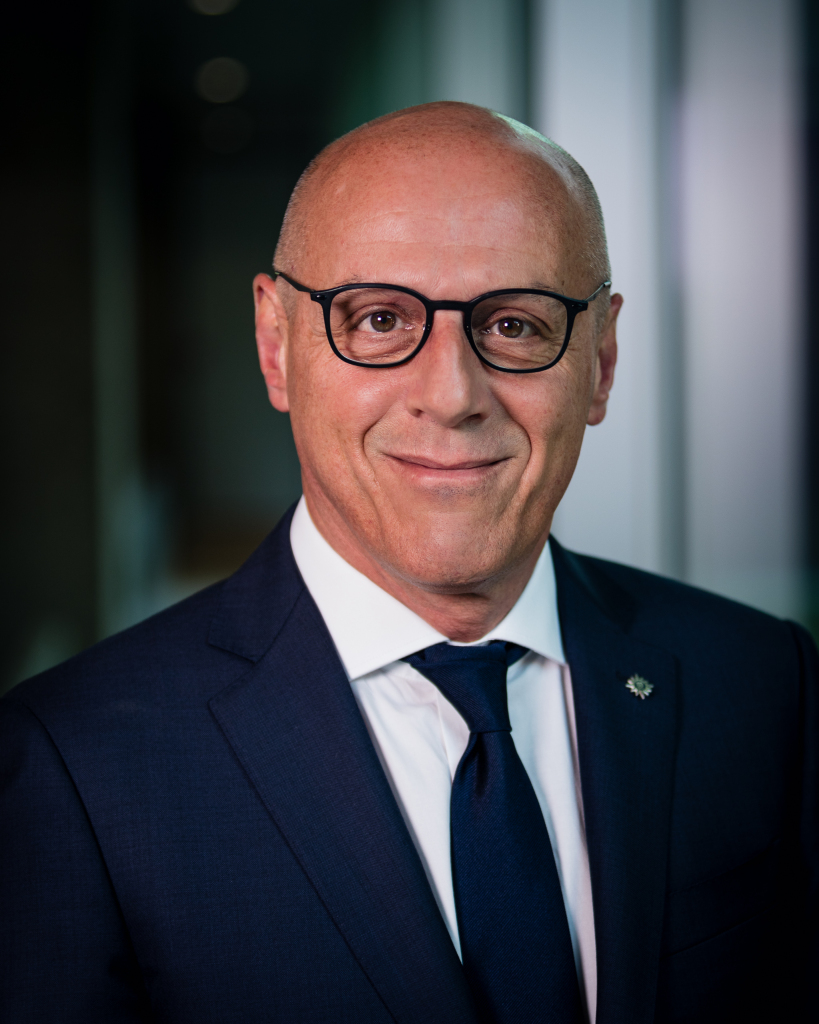 | CV Gianluca Suprani is MSC Cruises’ SVP for Port Development & Shore Activities. He is responsible for leading MSC Cruises’ strategic engagement with destinations, through the establishment of shore excursions, shore activities and port development investments. Mr Suprani’s cruising career began in 1994, at Costa Cruises in Italy. He moved to Miami, before settling in Havana, Cuba as a Costa representative. After leaving Costa Cruises in 1998, he remained in Cuba as Managing Director of Silares Terminales Caribe, operator of the cruise terminal in Havana and Santiago de Cuba. Following this, his professional experience continued in Madrid with Pullmantur Cruises, where he worked as Director of Port Operations, Shore Excursions and Bunkering. As a member of Pullmantur’s Executive Committee, Mr Suprani was involved in several innovative South American itinerary projects. In 2010, he joined MSC Cruises as Corporate Shore Excursion Manager. Whilst at MSC Cruises, Mr Suprani spear-headed the development of the Ocean Cay MSC Marine Reserve in The Bahamas, as well as the Company’s new mega terminal project at Port Miami. Leading a team of 300 employees ashore and on-board, Mr Suprani’s tireless aim is to ensure MSC Cruises’ passengers receive the highest possible quality of service from their port and destination experiences. |
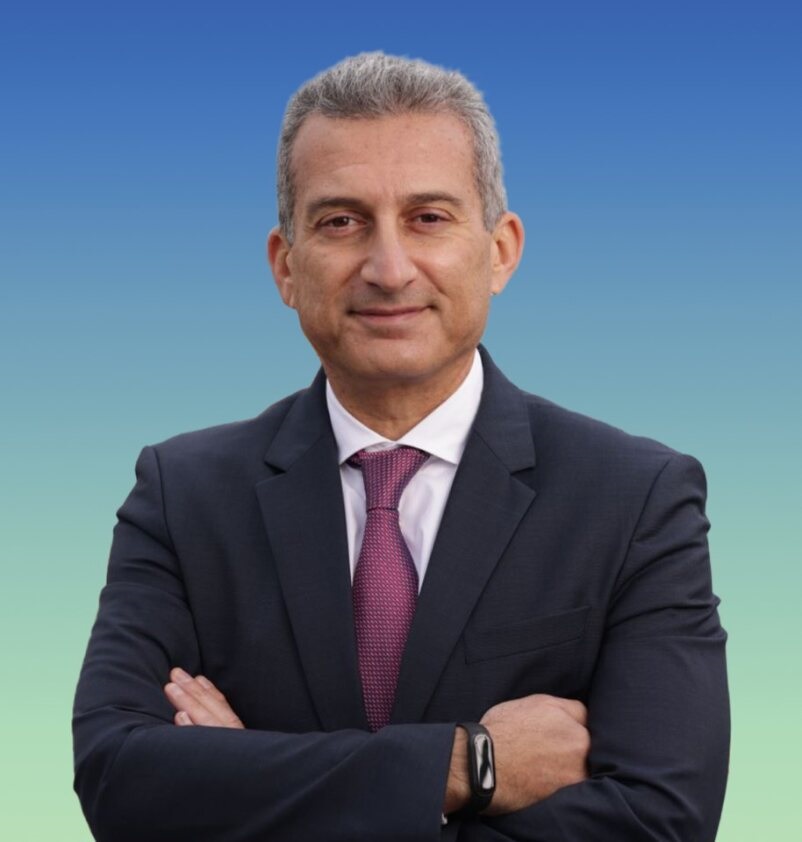 | CV Chris Theophilides was appointed CEO of Celestyal in July 2018. He previously served as the company’s vice president, strategy and business development then as chief operating officer, tasked with overseeing commercial activities as well as business development initiatives. Prior to joining Celestyal, Theophilides distinguished himself as a senior manager in corporate finance at PricewaterhouseCoopers (PwC Advisory), where he specialized in merger and acquisition transactions, business re-organisations, strategic options analysis and business valuations. Theophilides was born in Cyprus and obtained his Bachelor of Arts in Economics and Master’s degree in Business Administration in the U.S. prior to becoming a certified public accountant. He is a member of the American Institute of Certified Public Accountants (AICPA) and the Institute of Certified Public Accountants of Cyprus (ICPAC) and is accredited with the corporate finance qualification from the Institute of Chartered Accountants of England and Wales (ICAEW). Theophilides serves on various boards and trade associations, including the Executive Committee of the Cruise Lines International Association of Europe (CLIA Europe), the Cyprus Maritime Academy’s Board of Governors as well as Chairman of the Passenger Ship and Cruise Tourism Committee of the Cyprus Shipping Chamber. He was named “Cruise Personality of the Year” at the 2022 Seatrade Cruise Awards for his leadership, strategic planning and finance skills in recognition of Celestyal securing investment to renew its fleet. |
CV Constantinos Triantafyllou is a passionate marine sustainability professional with a demonstrated history of working in the maritime industry and the dynamic landscape of non-profit NGOs with a focus on maritime decarbonization, ESG/SDGs and marine conservation. He is bilingual, born in the UK, with academic studies in the fields of social sciences, marine resource management and sustainability in shipping. Constantinos currently holds the position of Head of Maritime Affairs & Stakeholder Development coordinating, among other, the activities of HELMEPA’s certified Maritime Training Centre. He is technical advisor of the Greek delegation attending IMO meetings and regular member of UN & EU scientific advisory committees and industry expert boards. |
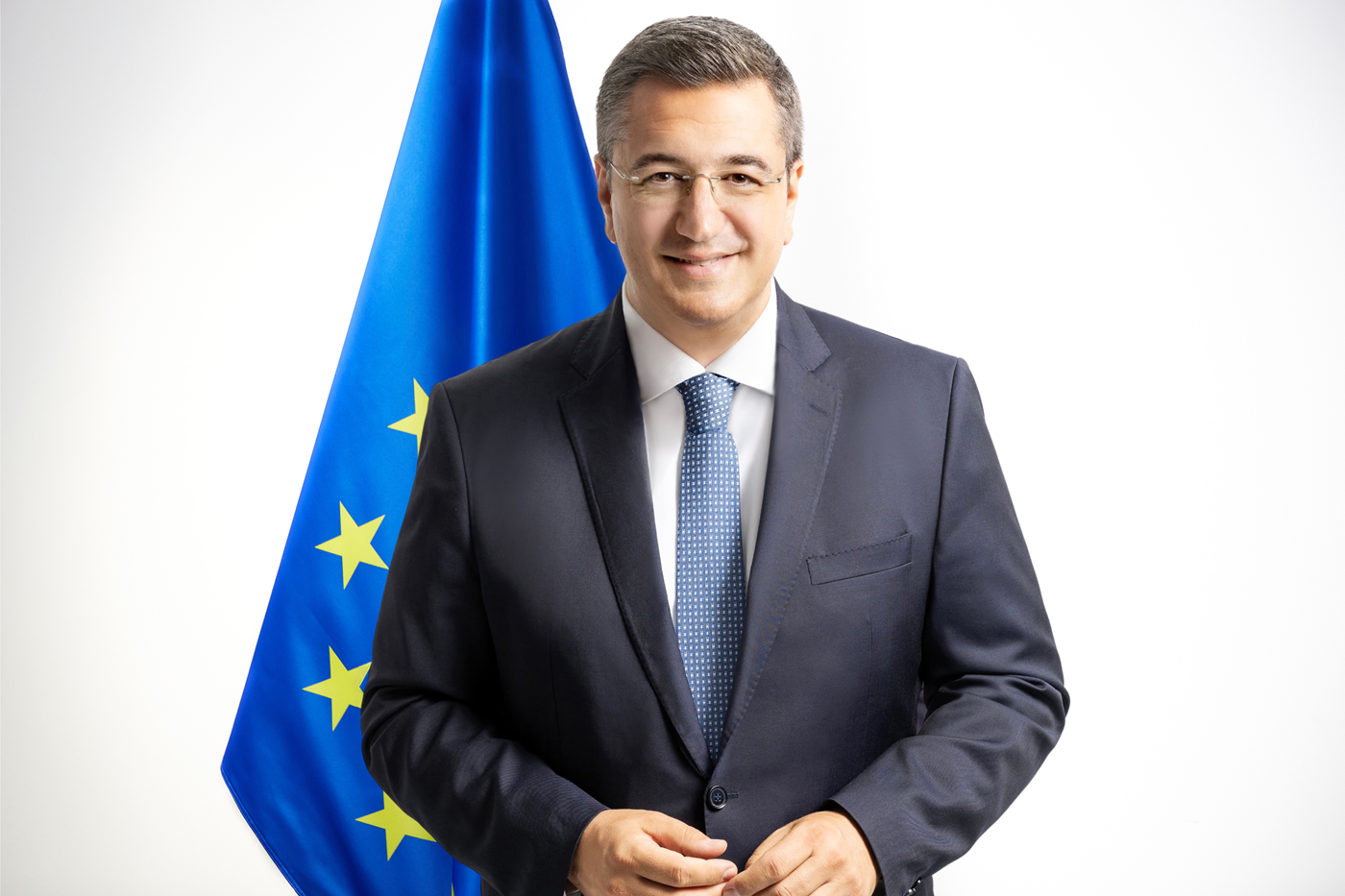 | CV Apostolos Tzitzikostas was born on September 2, 1978. He is a graduate of Athens College. He obtained a BA in Political Science and International Politics from Georgetown University in Washington, D.C. and a Master’s degree in European Public Policy from the University College of London. In 2002, he established his own company in Thessaloniki in the production and processing of dairy products based on organic standards. In the national elections of September 2007, he was elected Member of the Greek Parliament with the Nea Demokratia party in the 1st Electoral District of Thessaloniki. As MP, he served as Secretary of the Hellenic Parliament, member of the Standing Committee on National Defense and Foreign Affairs, and member of the Standing Committee on Financial Affairs. Additionally, he was a member of the Special Standing Committee on European Community Affairs and the Special Committee for the Reform Treaty of the European Union. He represented the Hellenic Parliament in the Euro-Mediterranean Parliamentary Assembly from 2007 to 2009. In the regional elections of November 2010, he was elected Deputy Governor of Central Macedonia and Head of the Thessaloniki Regional Unit. In the regional elections of May 2014, he was elected Governor of Central Macedonia with 71% of the vote. He was re-elected as Governor of Central Macedonia in the regional elections of May 2019 and October 2023, receiving over 60% of the vote in both elections. In November 2019, he was elected President of the Association of Greek Regions and was unanimously re-elected President in February 2024, for the first time in the institution’s history. Since 2015, he has been a member of the European Committee of the Regions, and in July 2017, he was elected Head of the Greek Delegation. In February 2020, he was unanimously elected by all political groups President of the European Committee of the Regions. In July 2022, he was also unanimously elected First Vice-President of the European Committee of the Regions. He has been serving as the European Commissioner for Sustainable Transport and Tourism since December 1, 2024. He speaks English and French, and his articles are frequently published in newspapers and magazines in Greece and abroad. He is married to Eleana Vlachou and has two children, George and Natalia. |
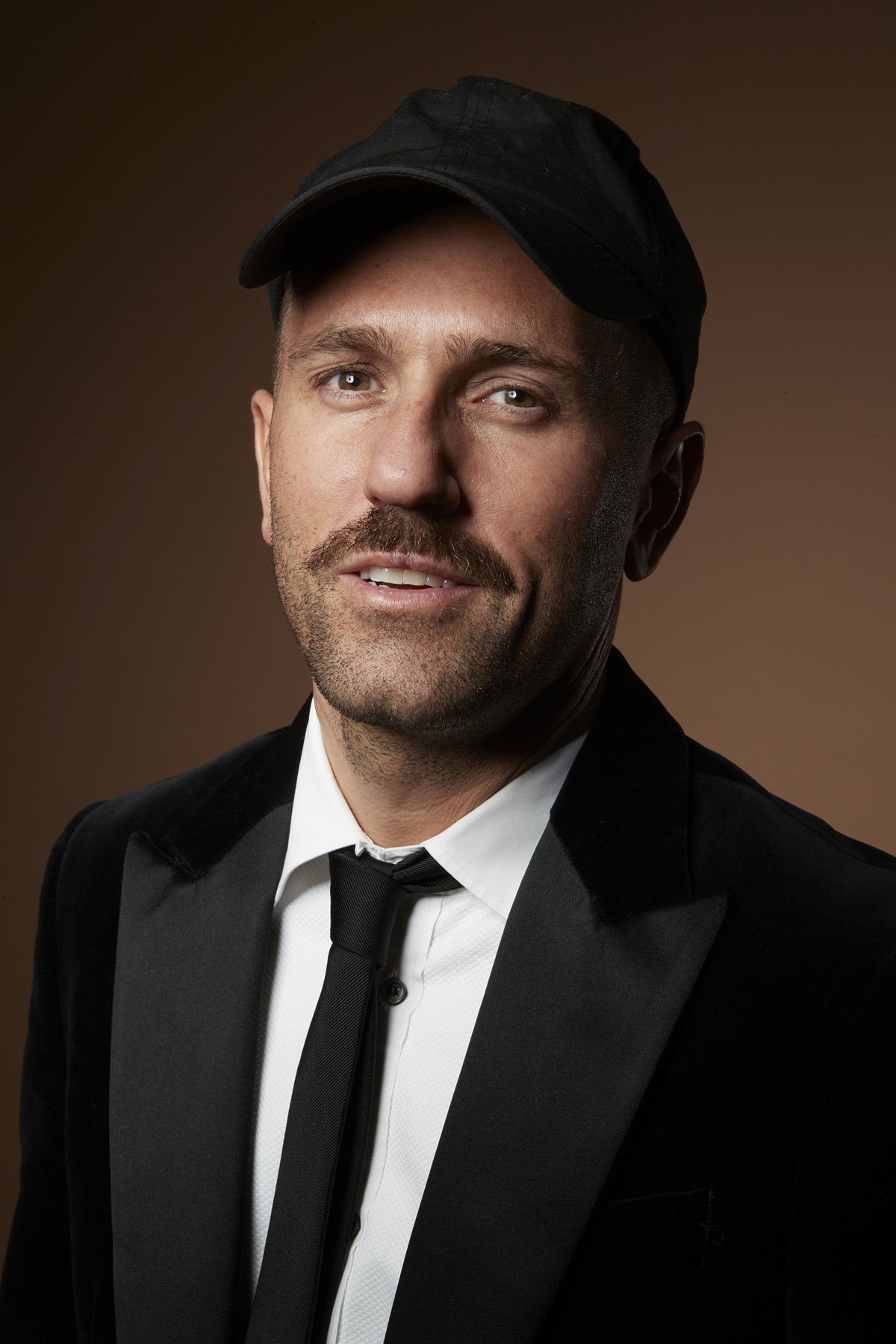 | CV Constantine Venetopoulos is a third-generation partner in Variety Cruises, an award-winning boutique cruise line established in 1949 that designs, builds, owns, and operates a fleet of 11 small ships. As Brand Director, he has played a key role in shaping the company’s global identity, leading visionary marketing strategies that blend personalized hospitality with a commitment to sustainability and cultural immersion. He holds a Bachelor’s degree in Business Studies from Cass Business School in London and a Master’s degree in Marketing from the University of Surrey, grounding his creative leadership in strong academic foundations. Raised within the traditions of the cruise industry, Constantine brings a deep-rooted understanding of guest experience and heritage-driven innovation. His background in filmmaking infuses the brand with cinematic storytelling, and his award-winning films -often focused on human rights and mental health- demonstrate his commitment to meaningful, inclusive narratives. Constantine stands at the intersection of legacy and reinvention -where family tradition meets modern storytelling- with a mission to promote regenerative travel and authentic connection that resonates far beyond the sea. |
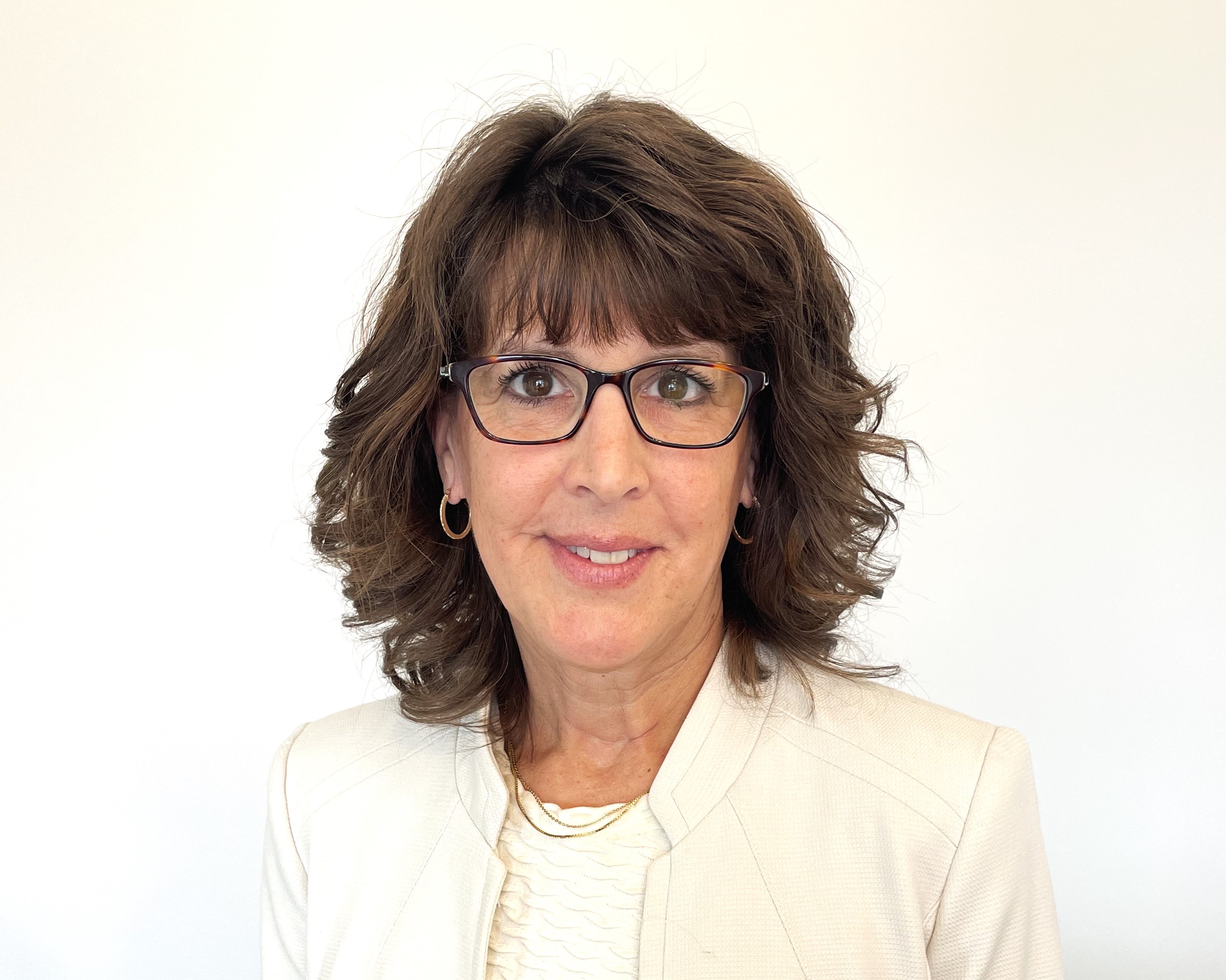 | CV Sandra “Sandi” Weir brings over two decades of experience to her role at Norwegian Cruise Line Holdings Ltd., where she currently serves as the Senior Director of Government Relations and Public Affairs. Her focus is on managing global government relations for the company’s three award-winning brands—Norwegian Cruise Line, Oceania Cruises, and Regent Seven Seas Cruises—and overseeing public affairs. Sandi’s tenure at Norwegian includes leadership in shoreside operations in Hawaii, involvement in business development, and a significant role in Revenue Management. Her expertise spans several key areas such as shore excursion development, port operations, contract management, community engagement, itinerary design, and revenue optimization. Sandi’s professional journey with Norwegian has seen her leave and later return to the company, a testament to her commitment and value in the sector. Outside of her time at Norwegian, Sandi held various positions at Cendant Corporation in their travel division and began her career in the Oil and Gas industry in Calgary, Canada. She holds a Bachelor of Commerce (Honors) degree in Finance and is a certified Chartered Professional Accountant (CPA). |
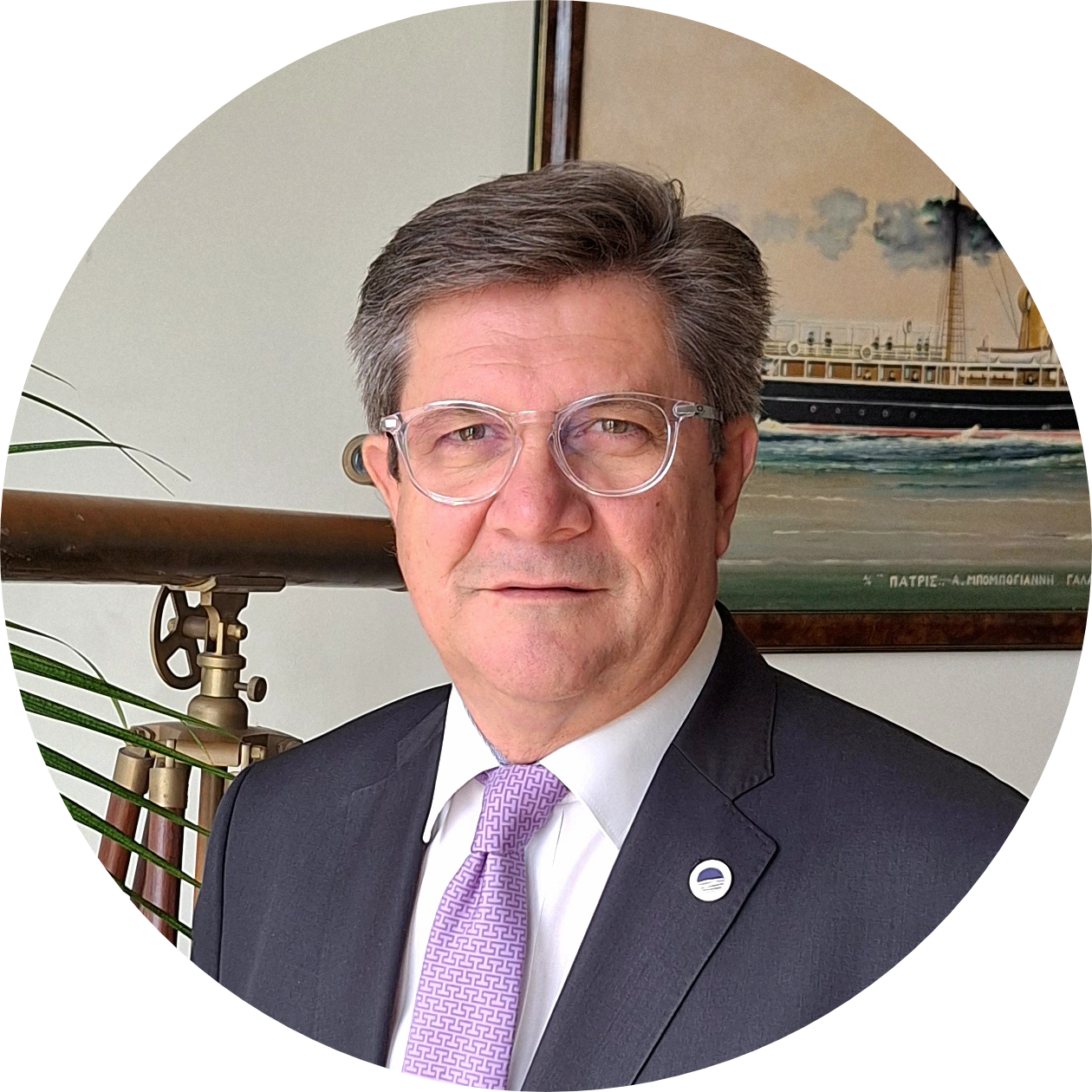 | CV George Xiradakis was born in Athens and grew up in Volos. He graduated from the Nautical Marine Academy of Aspropyrgos-Athens and he holds a diploma in Commercial Operations from City of London Polytechnic and an MSc in Maritime Studies from University of Wales. He served as Senior Manager in the French bank Credit Lyonnais both in Athens and Paris. In 1999 he founded XRTC Business Consultants which acts as a commercial representative of foreign banks and institutions in Greek Shipping Market. Since 2009 XRTC acting as Advisor to Chinese Finance market and in 2010 awarded in Lloyd’s List Greek Shipping Awards as “Financier of the Year 2010” for the completion of the first bilateral loan between a Chinese bank and a Greek shipowner which was signed in the presence of both countries Premiers. Mr. Xiradakis is President of the Association of Banking and Financial Executives of Hellenic Shipping, Vice President of China Hellenic Chamber (HCCI). He is President Emeritus of International Propeller Club-Port of Piraeus, Vice President of the Heraklion Port Authority, Member of the BOD of Imperial Petroleum Inc (Nasdaq) & C3is Inc. (Nasdaq), Member of the BOD of the Piraeus Chamber of Commerce & Industry, BOD member of Piraeus Marine Club, Member of the Mediterranean Committee of China Classification Society and Member of the Greece-China Association, Hellenic Maritime Museum and Hellas Liberty Floating Museum. In May 2019 he participated in the European Parliament elections. |
CV Marine Chief Engineer, Average surveyor, Chartered Engineer CEng, Ph D in Civil Marine. |